If you’re looking for a comprehensive introduction and explanation of social entrepreneurship, download our Social Entrepreneurship 101 Guide before you dive into our conversations with leaders in the space.
In early 2019, we launched The Social Entrepreneurship & Innovation Podcast, where each week we release an episode featuring both established and emerging leaders in the social impact and socially responsible business space.
We’ve covered a variety of topics with social entrepreneurs and innovators from a wide range of industries—tour companies, medtech, agencies, hospitality, and many, many more.
Each conversation provides our Grow Ensemble team with endless discussion of new information and interesting viewpoints we glean from our guests. In this post (and the two-part podcast episode that goes along with it) we want to highlight (a few) of those lessons and insights.
Whether you want to hear from the CEOs of some of the world’s most successful sustainable businesses, small business leaders making massive waves in their industry, or Executive Directors from entrepreneurial nonprofit organizations influencing widespread positive change, the gang’s all here!
The businesses you’ll see (or hear) here aren’t just running a Corporate Social Responsibility (CSR) program to check the boxes on “social good.” These businesses and business people have integrated positive social change and impact into their core of how they do business and how they show up in the world.
Their business methods and philosophies are inspiring for the change-maker and entrepreneur alike, making it clear that not only are those two identities compatible, but they should be inextricably entwined. What a pleasure it’s been to sit down with so many generous and successful social entrepreneurs and innovators thus far!
Watch on YouTube
Excited for many more inspiring conversations and connections to come.
What is Social Entrepreneurship?
Before we jump into a list of some of our favorite social entrepreneurs, it’s worth a brief mention of what social entrepreneurship is in the first place.
Social entrepreneurship, as a movement and term, is moving aggressively into the mainstream. And with this rise in popularity, more and more change agents are racing to the scene, as well as racing to define what social entrepreneurship is and who social entrepreneurs are.
In brief, social entrepreneurs are business people who use their business to create social value. These do-gooders are not funneled into the public sector, but in fact make up an increasing portion of the private sector. In addition to earning a profit, and equally, if not more importantly, their businesses respond to social issues or social needs they see in the world around them.
When the status quo isn’t good enough, these change-makers take action and show us (and the world) that when businesses understand social value creation as central to their company’s purpose, that can lead to large-scale solutions to local and global problems.
Check out our Social Entrepreneurship 101 Guide for a more comprehensive definition of social entrepreneurship where you’ll get a more in-depth look at how a few different people are defining it, where social entrepreneurship came from, and what its role in society might be now and in the future. You can also take a loot at our list of social entrepreneurs books for more resources.
Watch on YouTube
Clothing & Fashion
1. Alex Husted, Founder & CEO of Helpsy, On the Consumer’s Role in the Sustainable Future of Fashion
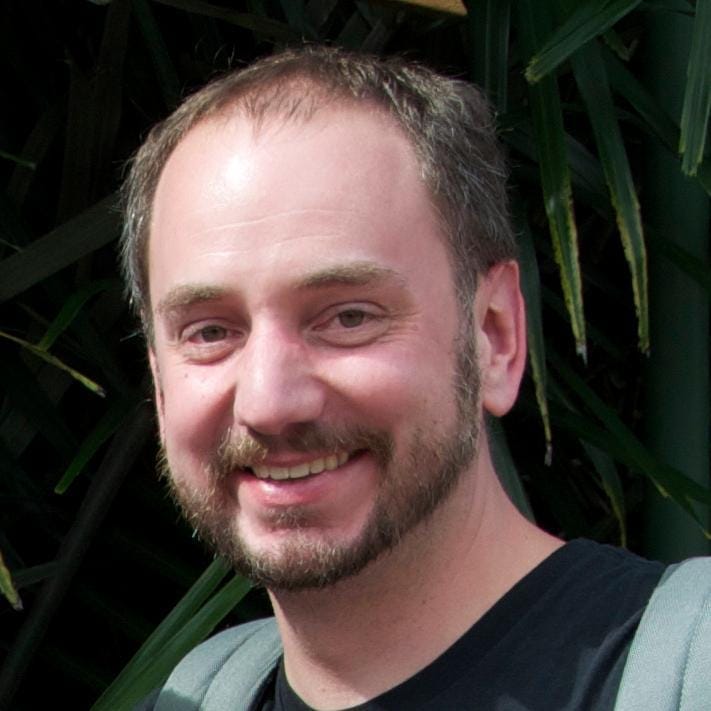
As informed by Alex and the Helpsy team, 95% of all clothing, shoes and other textiles can be given a second life. Sadly, over 85% just ends up in the trash!
In our podcast recording, Alex dove deeper into this issue, reducing, reusing, and recycling textiles and clothing, and explained how the consumer can and should be making an impact on this massive waste issue.
“The R’s come in order for a reason, right? So reduce is first because that’s the best thing you can do is just use less and then, reuse and recycle. Reuse is kind of where we do the playing, we’re trying to get as much reuse as possible, and then, recycle what can’t be reused.
So for folks like you [or your listeners] who I can’t tell to go to one of our bins and drop their old stuff in there, find someone close by that will take them. Any place you put it other than the garbage can is a whole lot better than putting it in the trash because if the life of those things gets stretched out in a number of ways that most people just don’t realize.
Everybody thinks that I don’t want it, so why would anybody else want it? I never want to see this pair of jeans again, I’ve worn them a hundred times. Why would anybody else want to wear this pair of jeans? It’s just not true. We’re trying to get that across.”
Want to hear more from Alex on Helpy’s vision for a sustainable future of fashion? Listen here.
2. Manish Gupta, Co-Founder & CEO of Matr Boomie, on Empowering Communities Through Trade
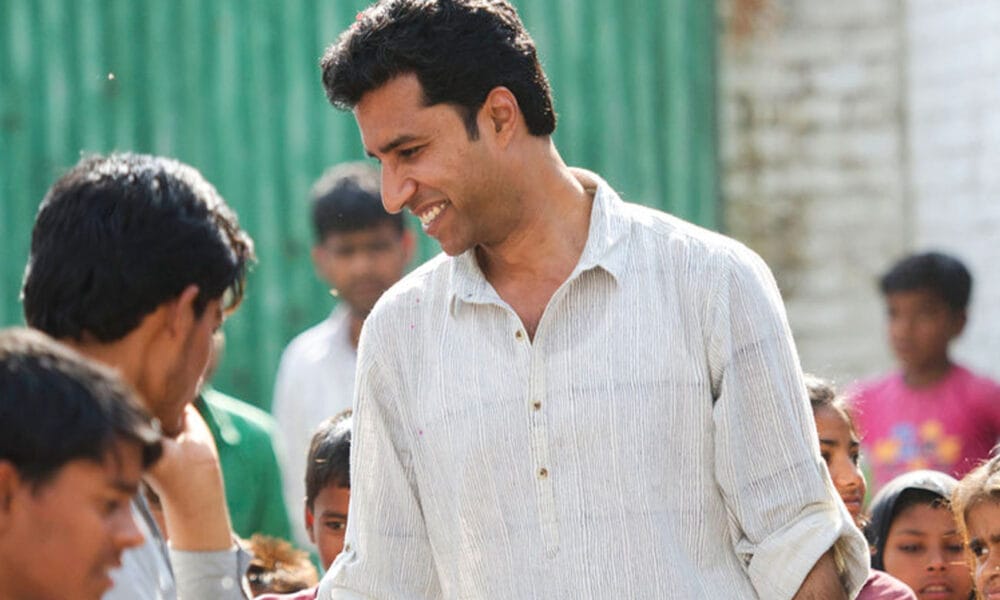
Manish Gupta and the Matr Boomie team have been able to connect and empower over 20,000 artisans in 40 partner communities in India since their founding in 2006.
It was Manish’s goal in starting Matr Boomie to use the power of trade to empower these Indian communities, provide them with resources and sustainable living, and hopefully, move the needle on lifting many of these communities out of chronic poverty.
“I have seen firsthand how powerful trade is and anything that we want is available to us. That’s quite amazing. Things from around the world are at our fingertips and that’s an amazing system. But at the same time I’ve seen how if trade is not done responsibly, it can exploit communities.
We’ve all heard examples of challenges in Bangladesh and small communities where there is so much chemical pollution that is ruining their rivers and farming. So we all know how trade, if it’s irresponsible, can exploit communities. But I also believe that if trade is done responsibly, it can empower communities.
It truly has the potential to eradicate poverty in the world. And that’s what I want to do is use trade as a tool for positive change.
3. Hannah Davis, Founder & President of BANGS Shoes, on Advice for the First Year Social Entrepreneur
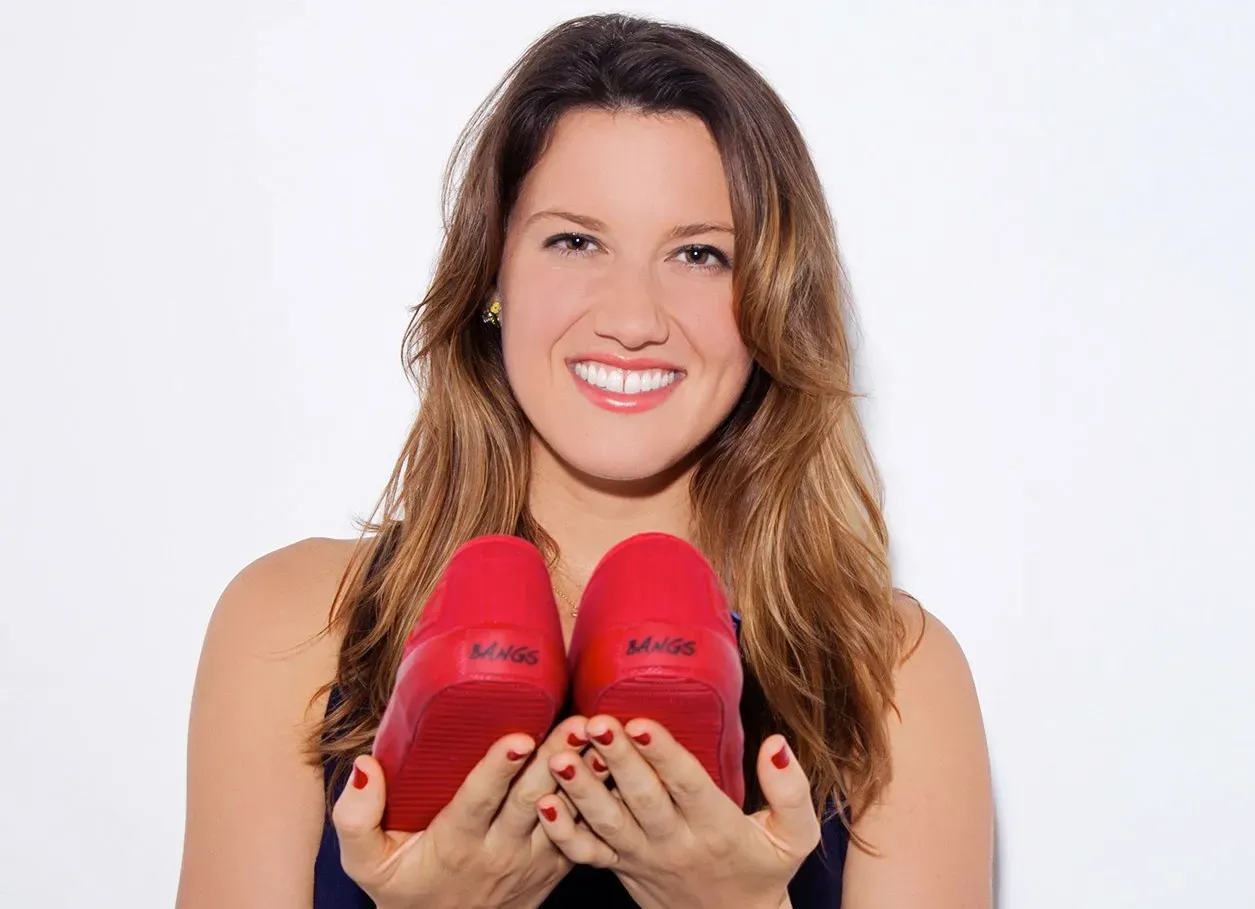
Hannah Davis’ and the BANGS Shoes team sell shoes to invest in entrepreneurs all over the world. And this was the mission that Hannah set out with when starting BANGS shortly after starting college.
A young entrepreneur, the start of her company seemed to revolve around all hustle, with little of the “success” she was seeking. However, with some significant personal development and key turning points, the growth of BANGS completely changed with BANGS now getting closer to a decade old, Hannah shared her advice for a social entrepreneur who might find themselves in their ‘year one.’
“I would say to relax a little bit. I think that’s a big thing to not overreact with emotion when things appear to not be going well, but just again, [think] what are your options and solve the problem.
And the other thing I would say…is don’t try to reinvent the wheel. It’s very, very rare that anyone has an extremely 100% unique idea. Look for somebody that’s done what you’re doing, but maybe a little bit better and possibly slightly differently and get their feedback and use technology to do the work for you because there’s so many apps and different resources and I just would encourage people to take advantage of those.
[I]t takes research and patience to understand what the possibilities are. But it is a really wonderful, beautiful time to be an entrepreneur.”
For more from Hannah on tips from her (and BANGS’) entrepreneurial journey, listen here.
4. Colleen Clines, CEO of the Anchal Project, on Building a Social Enterprise Success Story
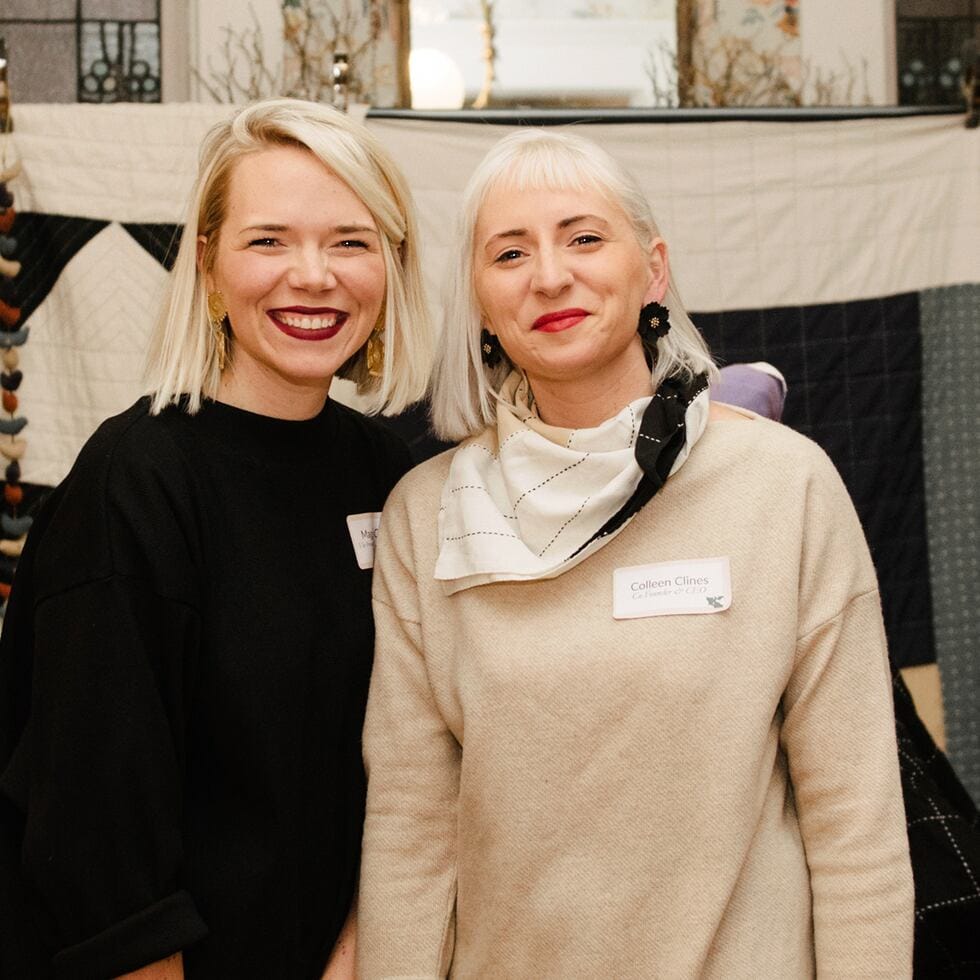
The Clines sisters, Maggie and Colleen, have built a thriving social enterprise in the Anchal Project. What started in 2011 as a nonprofit being built and run out of their parents’ basement, now employs over 150 artisans throughout India and the Clines’ hometown of Louisville, KY.
In our episode with the sisters, we dove into their now nine-year trajectory from humble beginnings and hustle, to what is now a clear social enterprise success story.
Colleen shared a little insight into how, even with few resources, the Clines sisters still managed to build the confidence to continue in the early years of Anchal:
“A real turning point for us was one, the confidence we built through those first few years, but really the impact, it’s about taking action regardless of whatever you don’t have.
Once we had a few years, two years I’d say of artisans that we had been working with, seeing the little impact that we had in their daily life at the time, and then products to show for it. That’s when people started slowly getting on board.”
5. Laura Wittig, Founder of Brightly, on the Importance of Closeness with Your Customer to Move Conscious Consumerism Forward
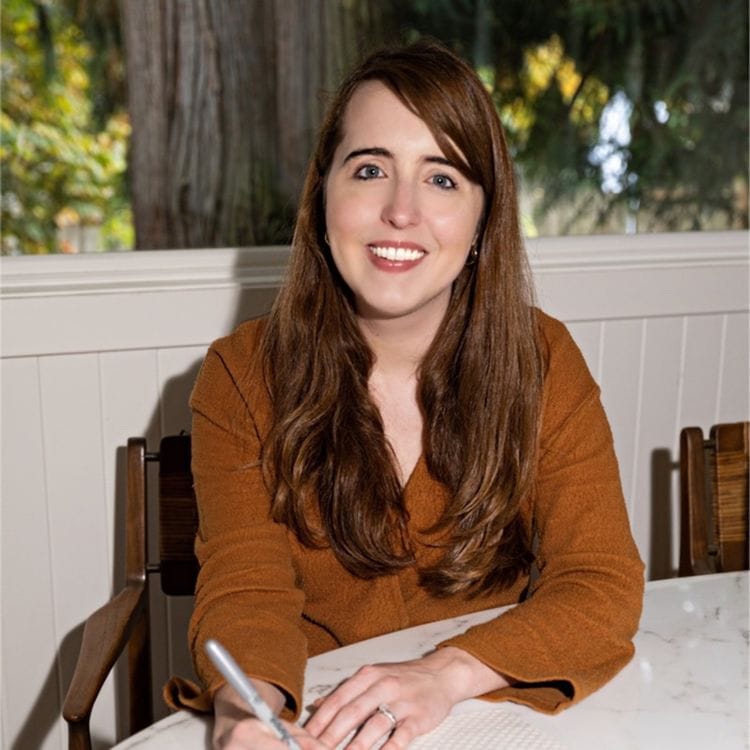
Laura Wittig and the Brightly team have created a centralized platform for consumers to engage with ethical fashion, beauty, and home goods brands. They’ve created a great alternative to Amazon for these products!
What started as a desire to facilitate the search for sustainable fashion brands, Laura had this idea for Brightly to be the one-stop-shop for the conscious consumer to find sustainable clothing brands and connect with others interested in the same.
In our episode, Laura shared how her experiences in Amazon, Google, and Adobe as a product manager influenced the modern and open culture she’s driven to create with Brightly.
“[I]n order to [project manage], to successfully do that, you have to make sure that you are adequately convincing people across the company as to what you’re doing. So you do a lot of pitching, you do a lot of negotiations across teams to make sure that you’ve got the resources that you need.
And for me it’s been trying to understand, as I’m growing this team is how do I make sure that I am always fostering a culture of openness, mindfulness, and then also a culture of being really, really connected to our customer.
Because that is what always sticks out in product development at least, is the closer you are to the customer and to the actual problem, the better off you’re going to be.” [14:17 – 15:30]
Food & Drink
6. Allison Gibson, from Paintbox Catering & Bistro, on a B Corporation Business Culture that Puts its People First
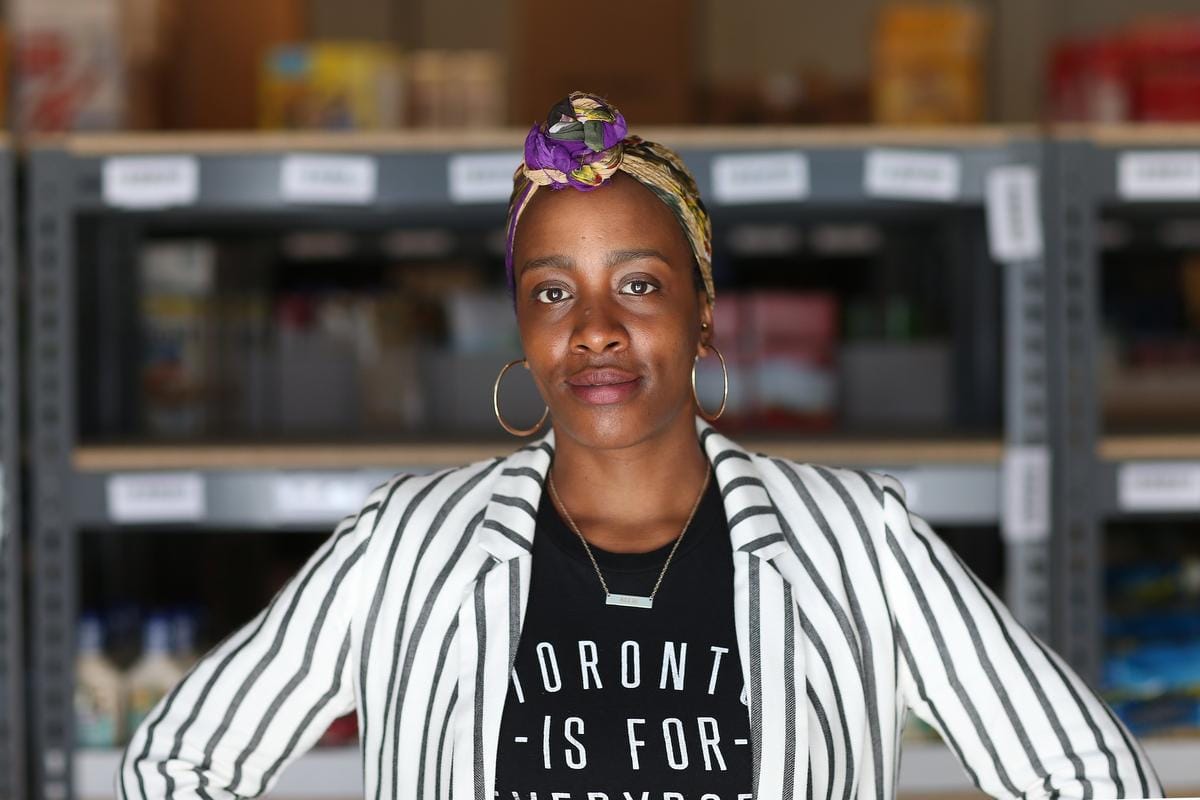
I first connected with Allison at the 2018 B Corporation Champions Retreat in New Orleans.
From the moment we met, it was wildly clear Allison had a passion both for the work she did and the community she and the Paintbox team had cultivated in Regent Park, a historically disadvantaged neighborhood in Toronto.
Allison was generous enough to join me for a recording to talk more about this culture at Paintbox, with a specific example of how that culture allowed her to lean on her team when she had to manage the challenging personal experience of a parent passing.
“I’m super, super grateful for the team that I have and for the opportunity to work for and with a business that puts its people first. Had I been working anywhere else, I definitely would have been fired or laid off…Despite going through what I was going through with my mom, my personal needs did not change, my rent was still due the first of the month, all of the people that depended on me still depended on me…
I needed to really trust my team and give people more opportunities. So at that period when I was away, I would take certain servers from the restaurant and ask, “I know you don’t normally do bar inventory for example, but can you please do that while I’m gone?” And, they would rise to the occasion and do an amazing job.
So I really took away that if you challenge your team or give them opportunities and they rise to the occasion, great—keep giving them responsibilities, keep going to them to help problem solve. I also really, really valued that I work at a business that cared because it wasn’t just that they sent me cards, they were sending food to my house, people would just call me, come by. I would come home to flowers on my doorstep almost daily. It was insane.”
For more from Allison, and a business culture that creates community, click here to listen.
7. Yoni Medhin, CEO of Grain4Grain, on the Desire to “Give Back” with Business
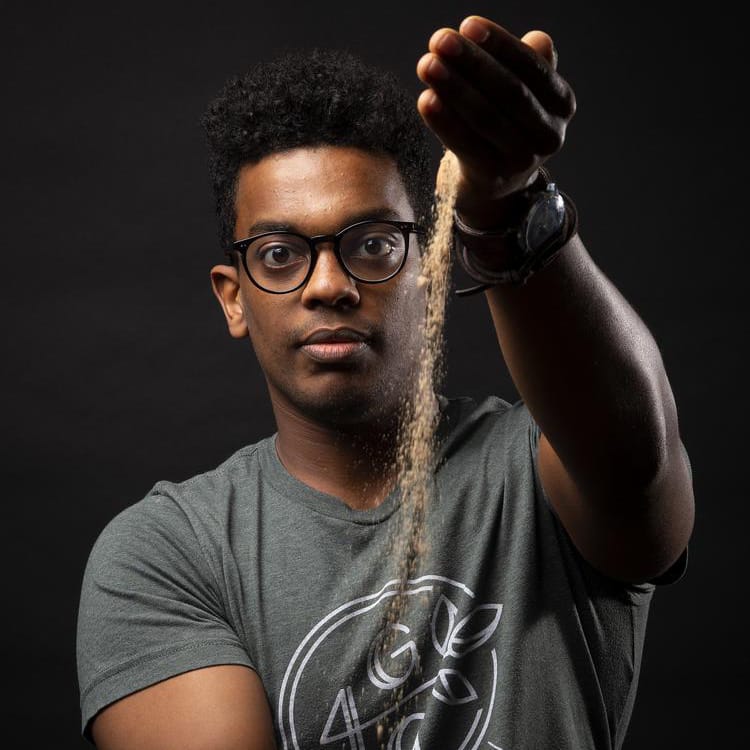
Almost serendipitously, Yoni and I connected at a local farmer’s market here in San Antonio. Using his spent grain pancake mix, Yoni was flipping cakes for passers-by, and I, a sucker for a good “one for one” model (and a free pancake), was drawn to hear more about their work.
This struck a friendship and an ensuing podcast interview from the comfort of my San Antonio living room, where Yoni shared with me his motivations and values in starting Grain4Grain with his friend and business partner, Matt Metchly.
“Really the taste came when I went overseas to Poland to teach English. And then in college, I went to Nicaragua to help build an orphan home for kids that suffer with addiction…
But essentially that kind of feeling that I had, and purpose, of just giving somebody my all, somebody that I did not know, a stranger, and then them actually receiving something of value, because we always hear about all these companies that just give money and kind of wipe their hands and say, “Hey, we did our thing.”
But for us, it was…and for me, personally, this is something that’s just true to my heart—building company that intimately gives back. This just has flourished into now what is Grain4Grain.”
Want to hear more about Yoni & Grain4Grain’s “give back” model? Click here to listen.
8. Paul Hargreaves, CEO of Cotswold Fayre, on the Only Reason to be “in Business”
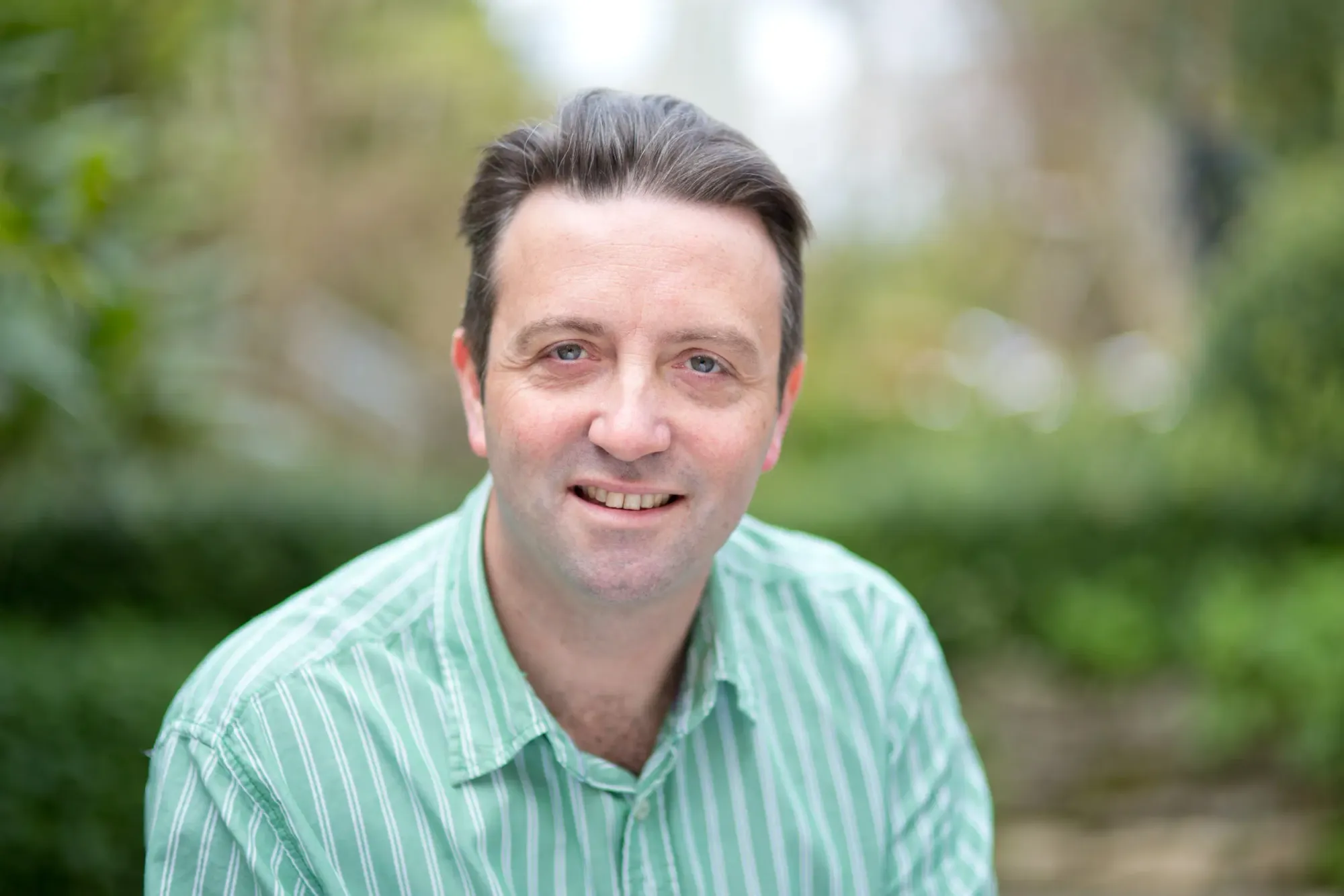
Paul Hargreaves is a leader and staunch advocate within the certified B Corporation community in the UK and Europe. In March of 2019, Paul published his book, Forces for Good: Creating a better world through purpose-driven businesses.
In it his book and our interview he elaborated on his journey through purpose-driven business, from starting a nonprofit organization in inner-city London to now leading Cotswold Fayre, one of the founding B Corporations in the UK and leading specialty food and drink wholesale distributors in the region.
Paul’s passion for using business as a force for good is starkly clear, and that shines through in his perspective shared throughout his book and our conversation. It seems to all boil down to one point for Paul:
“If people are happy and fulfilled working for me, then I’ve done my part to make the world a better place. It’s the whole reason I’m in business.”
9. Max Rivest, CEO & Co-Founder of Wize Monkey, on Why Passion Creates the Persistence to Succeed
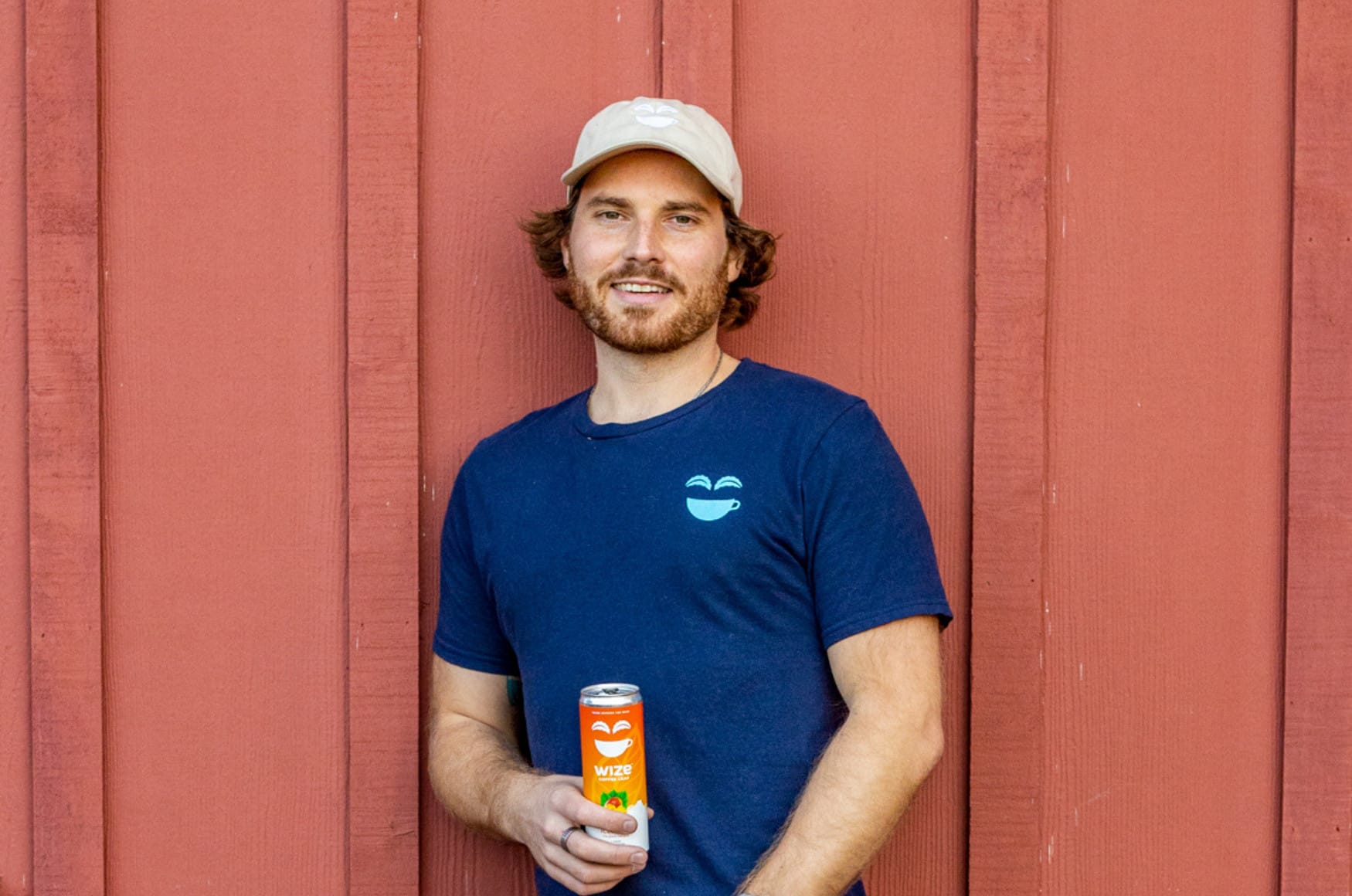
Max Rivest is the CEO and Co-Founder of Wize Monkey, a Vancouver-based tea company that “resurrected” a coffee leaf tea, which helps stabilize the coffee industry for long-term socio-economic growth.
His business plan, which started as a master’s thesis in business school, became a social enterprise business model. Max & Wize Monkey have created a need for year-round work for coffee farmers (and those who harvest the berries) who have previously been victims to seasonality.
Max, a very passionate and creative entrepreneur, came on the podcast to elaborate on his pursuit of his own passions and his recommendations for others doing the same.
“If you’re working on something that you don’t care about, you’ll never be good at it because you just won’t have an innate instinct to just get better at it. And it’s just irrelevant to you if you keep forcing yourself to do that. No one ever wants to learn something by force. No one ever wants to do something by force. It doesn’t work like that.
Humans, especially, millennials now because we’re kind of in a different mindset than prior generations, we really have to find what we care about and try to break into that space and carve out your own niche within that space. Eventually, once you get good enough at it, you’re going to bring value to somebody and that’s when you start getting a paycheck.”
For more from Max, the Founding of Wize Monkey, and pursuing passion, listen here.
10. Paul Bain, Tea Captain (& CEO) of Justea, on the Impact Equity Can Make in Their Family Owned Tea Business
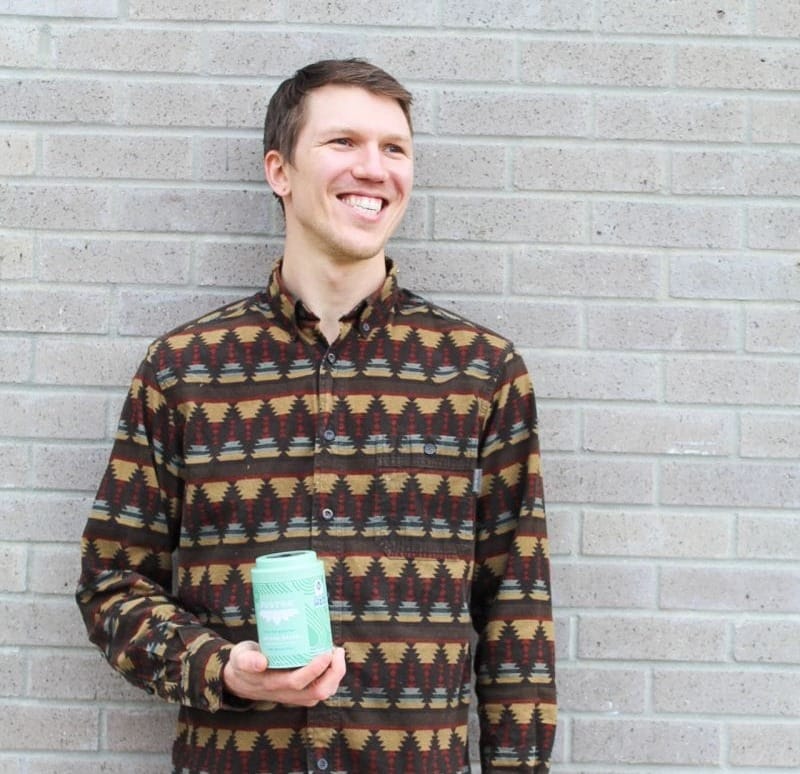
Paul and the JusTea team, based in Vancouver, B.C., have partnered directly with Kenyan tea farmers to provide ethical, antioxidant-rich, and sustainably produced fair-trade tea.
What started with a 2012 trip to Africa with his Dad has turned into over 200 jobs for women and young people in rural Kenya and the founding of the first-ever small-scale, farmer-owned artisanal tea factory in the country.
On the podcast, Paul shared much to the ‘story behind the tea,’ with a particularly striking story as to the impact this sense of (and literal) equity had on the community of Kenyan farmers.
“We were doing these trainings on how to handcraft teas [in Kenya]. So at the very simple level of just using hand picked leaves, hand rolling, and then sun drying. And when we first tasted this tea we thought, “Hey, this is an amazing cup of tea.” It was really delicious and not like other teas that we’ve had from Kenya before.
When these farmers tasted it, they were really excited and we didn’t know why. We thought it was just because of the taste, but then they started just chatting in Swahili to each other and so I asked someone who was taking us around, “What are they saying?”
And he said, “They’re so excited because this is the first time they are tasting the tea that they grow.”
So they’ve been growing this tea for decades, and they never actually tasted it…from the weighing station to the factory, to the broker to the auction, they never got a taste of the tea that they’d been bending their backs over, trying to pick every day for their whole life.
And so when they finally tasted, it was such a great sense of ownership and pride and really special moment for us and them.”
11. Mark Cuddigan, CEO of Ella’s Kitchen, On Redefining What “Great” in Business Means
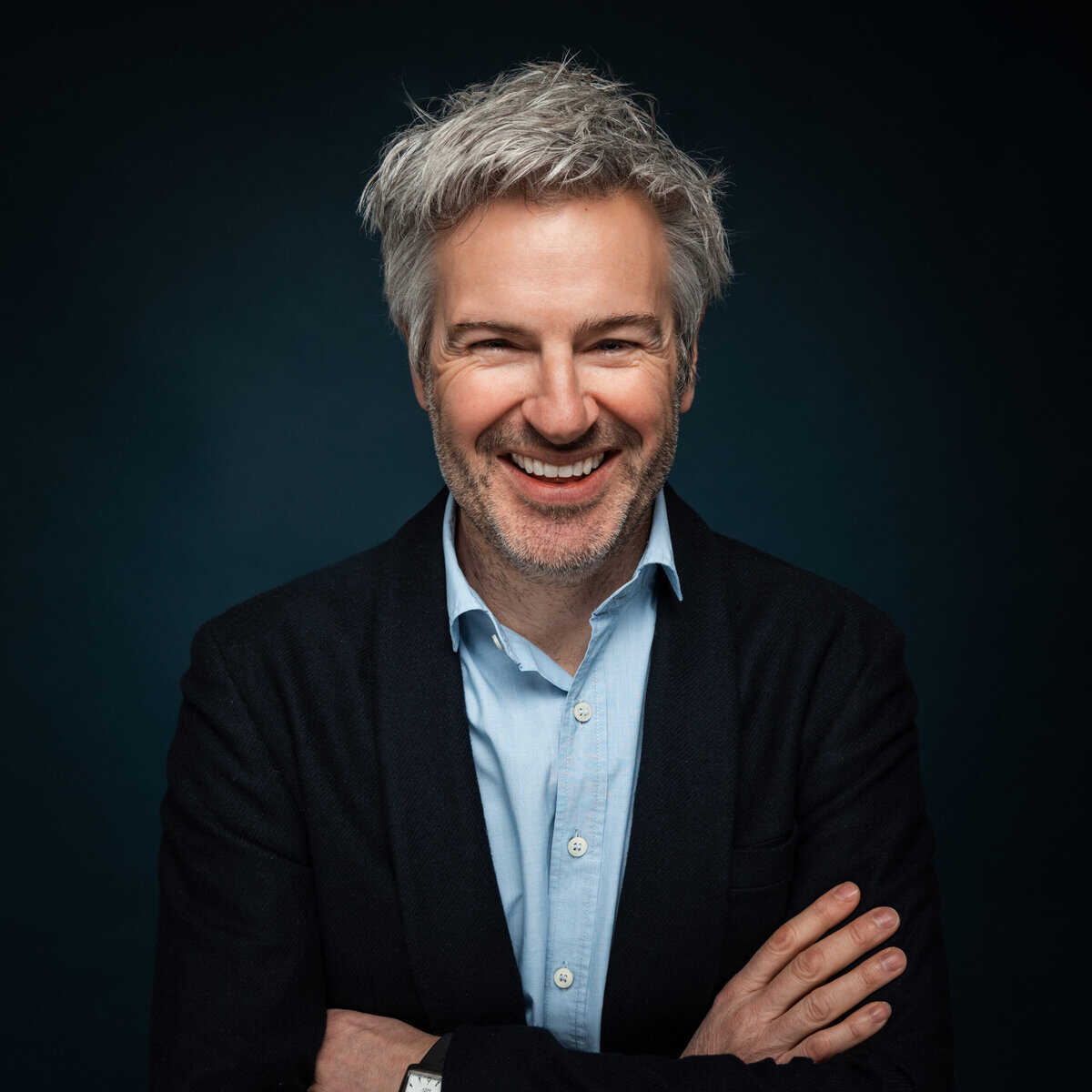
Mark Cuddigan is the CEO of Ella’s Kitchen, the number one baby food company in the United Kingdom. He’s also the Head of Sustainability for the Hain Celestial Group and a staunch advocate of using business as a force for good as a member of the UK’s B Corporation Community.
On the podcast, Mark shared why it isn’t enough for a business to be “great,” and that “great” in business isn’t what it always was.
“It’s not good enough now to say you’re a great company. It’s not acceptable. I don’t think a CEO can get away with saying, “I run a great company.” My thought would be, “Great, what you want? Do you want a medal? Do you want a pat on the back?” No.
Your responsibility if you’re running a great company is to inspire other companies to follow your lead.
We’re in a whole world of trouble, literally, with global warming. We’re not going to get out of it by people being selfish or looking after themselves. We need to help other companies and we need to inspire other companies.”
12. Logan Christopher, Founder of Lost Empire Herbs, On The Power of Seeking Impact Partners
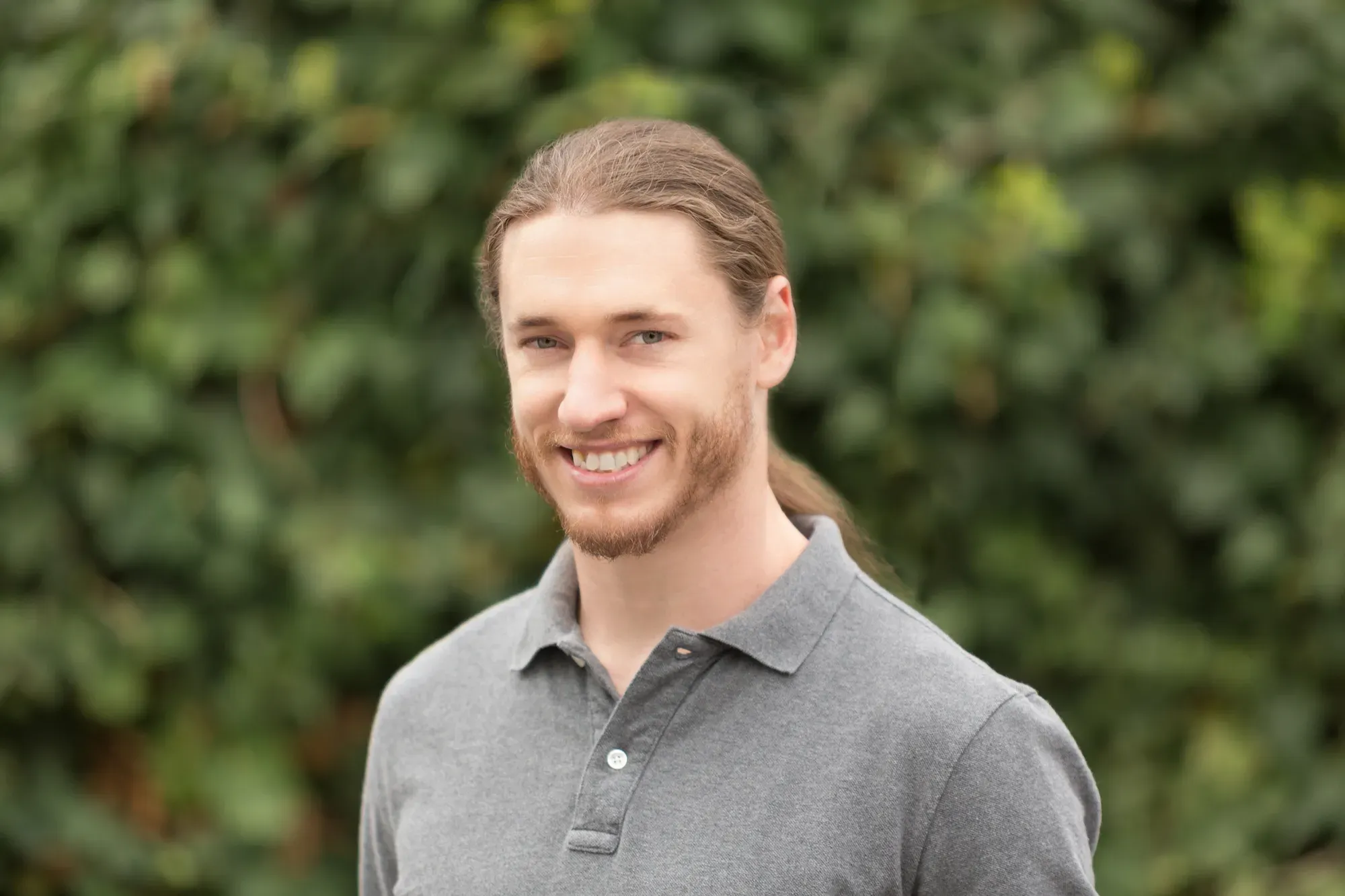
Logan Christopher is the Founder of Lost Empire Herbs.
On our podcast recording, Logan shared with me the “why” behind his decision to enroll Lost Empire Herbs in the 1% for the Plant commitment and what it’s meant thus far.
“Glad to have made the decision. When I came across 1% for the Planet, I thought, “That’s just an amazing thing, we should definitely do that.” It was kind of a fast decision…
We’re proud to be part of that. We support a number of different charities through doing that. One of which that I’ve worked with personally, the Pachamama Alliance. I ended up traveling down to the Amazon rainforest with them. It’s been great to really dive into that world and understand the bigger picture of all these other things going on.
The planet’s not going anywhere, but if things keep continuing the same direction with where we are going, we could end up going somewhere else. So being able to find the charities that can really make a strong impact in these different areas is important.”
For more from Logan & Lost Empire Herbs’ commitment to the planet, listen here.
Home, Health, & Lifestyle
13. Thomas Querton, CEO & Co-Founder of AtlasGo, on Why You Don’t Need All the Answers
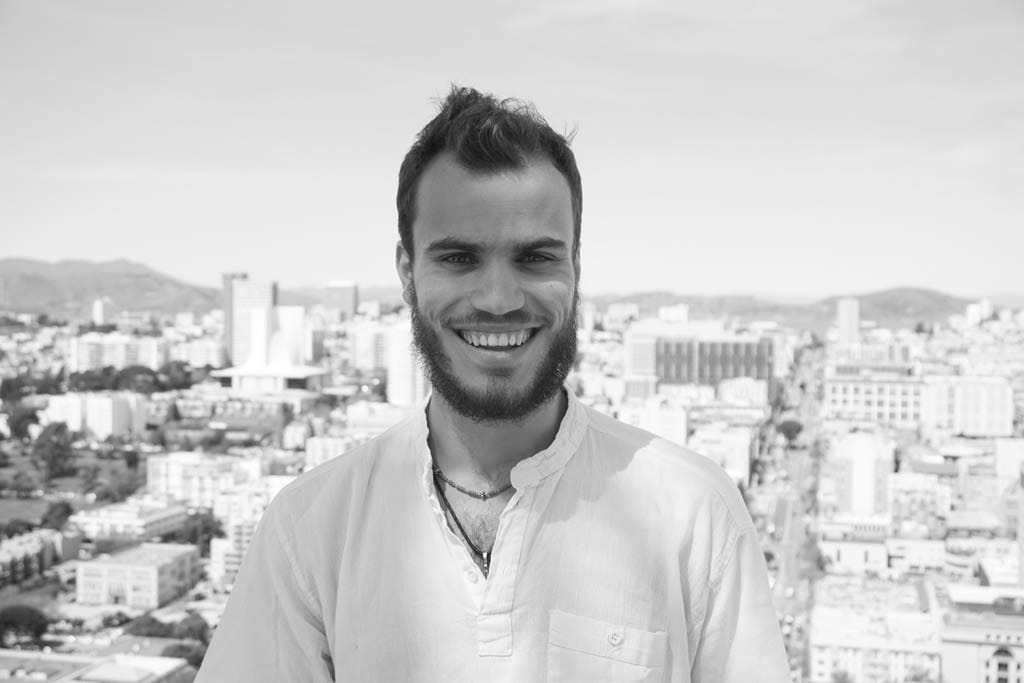
Thomas Querton is a young, hungry entrepreneur from Belgium, now based in San Francisco, CA working with the AtlasGo team as they cultivate a community of ‘sweaty change-makers.’
In our recording, Thomas shared a lot of wisdom, despite his relatively recent development into an entrepreneur. He discussed the importance of having a clear focus, strategy, and taking time away to analyze successes/failures, as well as the truly critical component of reminding yourself you don’t need all the answers.
“As a Founder, especially if you read Steve Jobs’ biography and you’re kind of naive and stupid like I am, you think that you need the answers to everything, right? You think you need to have the vision, right? People talk about this vision that you have to have. And that puts so much pressure on you.
[Often] you’re just a kid and you don’t know too much…but you really need to ask good questions. And then, with that ability to ask, it’s really simple, right?
Asking your users what they want, asking your clients what they want and really paying attention to what they say and continuously asking more questions. They have the answers. So it makes everything easier, right?”
14. Kate Jakubas, Founder of Meliora Cleaning Products, On Business as a Tool to Solve Social & Environmental Problems
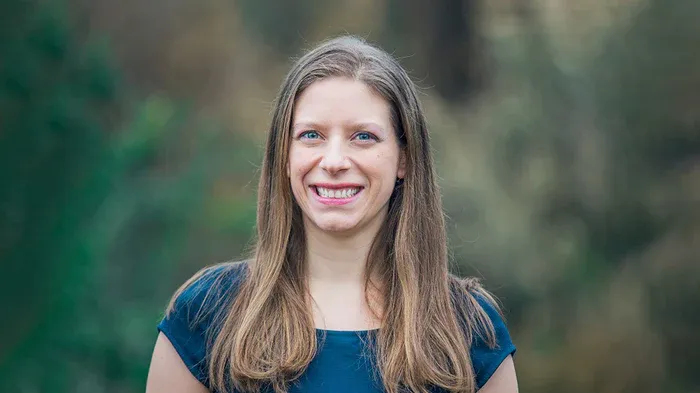
Kate Jakubas is an environmental engineer by trade. Growing up as one of the kids who had a “rock collection” instead of a lemonade stand (as she put it), she hadn’t considered herself at any point destined to be a business person.
However, with her care for the environment and her engineering drive to solve problems, she became inspired to determine what potential toxic and environmentally harmful chemicals she could remove from her own personal consumption. This then turned her onto household products and led to the founding of Meliora Cleaning Products, which she runs with her husband, Mike.
Kate came on the podcast to talk zero-waste production and shared how she found the connection to business as a tool for good from her engineering background.
“As engineers we solve problems. It’s basically everything that engineering is, you find something that’s broken and you fix it or you find something that you think you could make better and you make it better. And that’s ultimately what I like to do.
…As I got more work experience, I noticed that, it’s not just a hammer, it’s not just a piece of duct tape that you can use to solve a problem. You can actually use business itself as a tool. And that was really interesting to me.
…I really liked the idea of using business as a tool and focusing it on a social problem or an environmental problem.”
15. Dave Spandorfer, CEO of Janji, On Using Running to Start a Business that Affects Positive Change
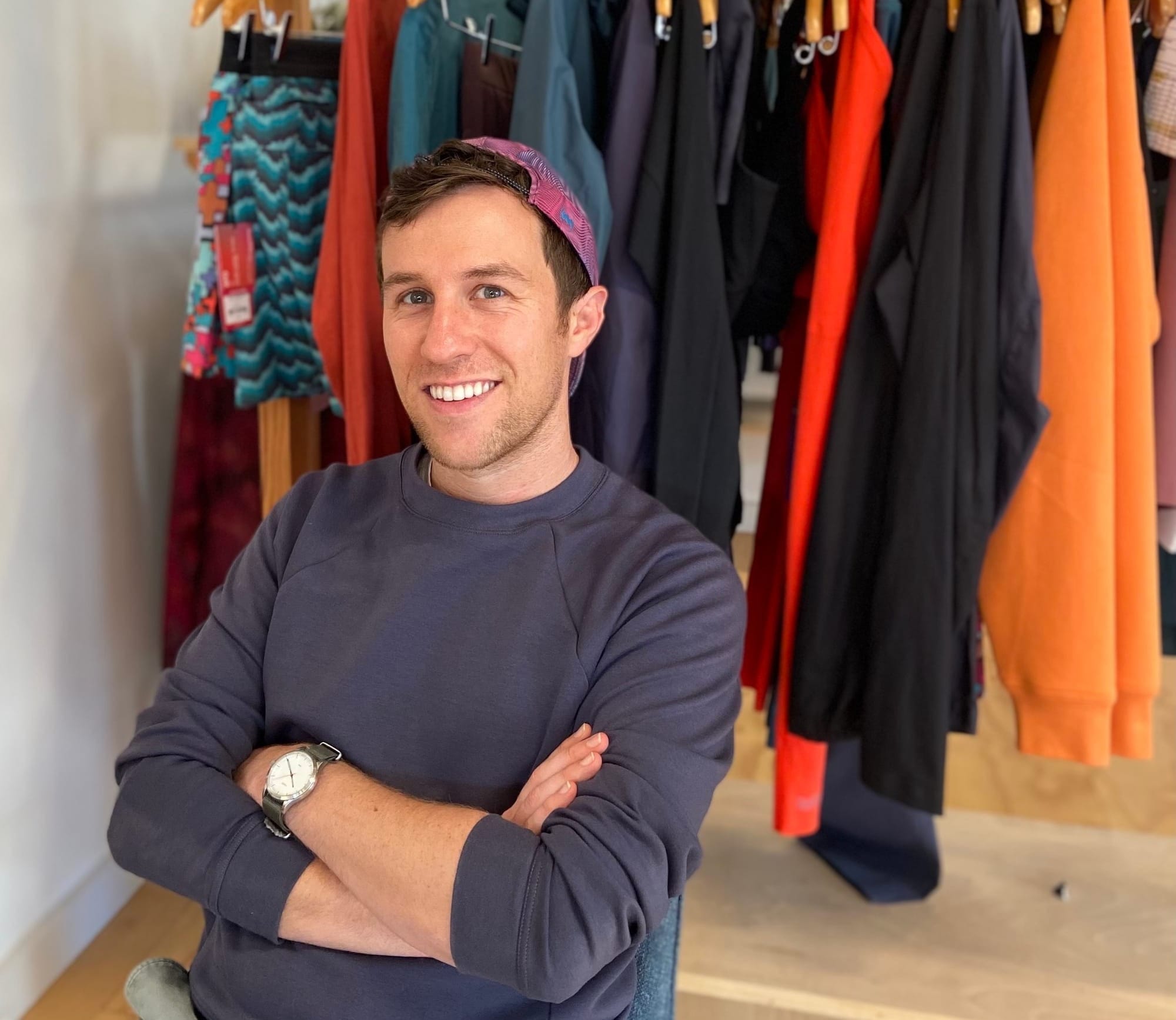
Dave Co-Founded Janji in 2012 when he was a college student with one of his teammates on the cross-country team. Reflecting on the fulfillment each of these two had received from the sport of running, they wanted to start a business that kept them connected with the sport and shared the joy they’ve received from it with others.
With the risks involved in starting a business, both Dave and his Co-Founder believed they might as well do something bigger to make it worth it: make an impact. They decided to take a chance on creating a business that seemed truest to them and with the greatest integrity.
Now one of the producers of the “Best Running Shorts of the Year,” as they were named by Runners World, Dave came on the show to share with me this journey with Janji and some of his thoughts early on as they were formulating the business’s ‘do good’ DNA.
“You see all these stats of the rates of failure for people who start businesses. If we are going to start something, we knew we had to do something that would affect positive change in the world. We wanted to find a way to use running as a power to make the world a better place because it had been this power to make our own lives better.”
16. Jim Osgood, CEO & President of Klean Kanteen, On The Importance of Being Clear on Your Mission & North Star
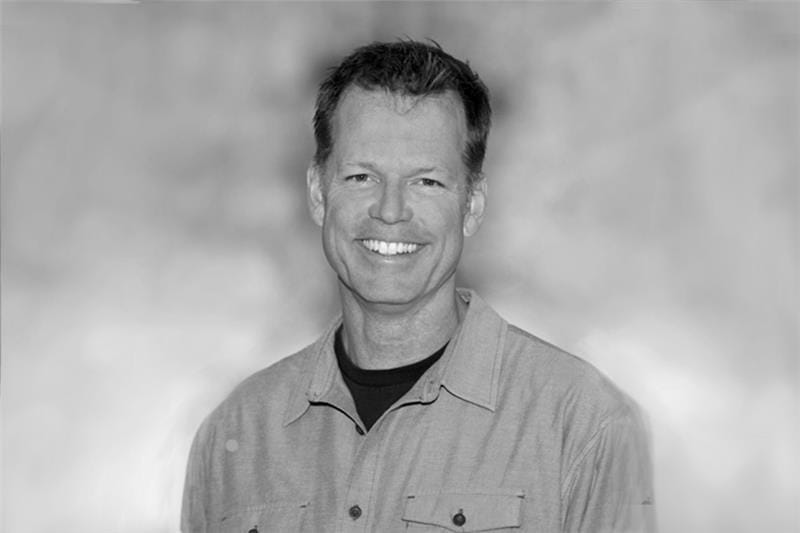
Klean Kanteen has been a model of a “triple bottom line business” since the beginning, with their focus being on creating and offering solutions to eliminating single-use plastics. It was in 2011 when Jim Osgood joined the ‘Klean Team’ to help elevate that mission to the next level.
In Jim’s time with the Klean Kanteen team, Klean Kanteen became a certified B Corporation in 2012, and they have continued to make massive contributions to 1% for the Planet, all the while tripling sales and dramatically increasing profits.
Jim attributes this largely to Klean Kanteen’s focus on maturation as an organization with a key element of that growth being their commitment to strategic planning and getting clear on their “why.”
Since our chat, Jim has embarked on a new business adventure, but as CEO of Klean Kanteen, he provided great insight into Klean Kanteen’s emphasis on mission and strategic planning.
“Being clear on your North Star, clear on your mission, clear on the fundamentals, they key priorities, [that] makes [strategic] decisions pretty easy when you’re true to your values, true to your ethos.
…When you are true to your values, true to your ethos, the big, gnarly decisions actually become easy. It’s the little knick-knacky things that we get wound up on every day that are pretty inconsequential.”
17. Peter Dering, Founder & CEO from Peak Design, on the Formula for Balancing Business Growth with Environmental & Social Sustainability
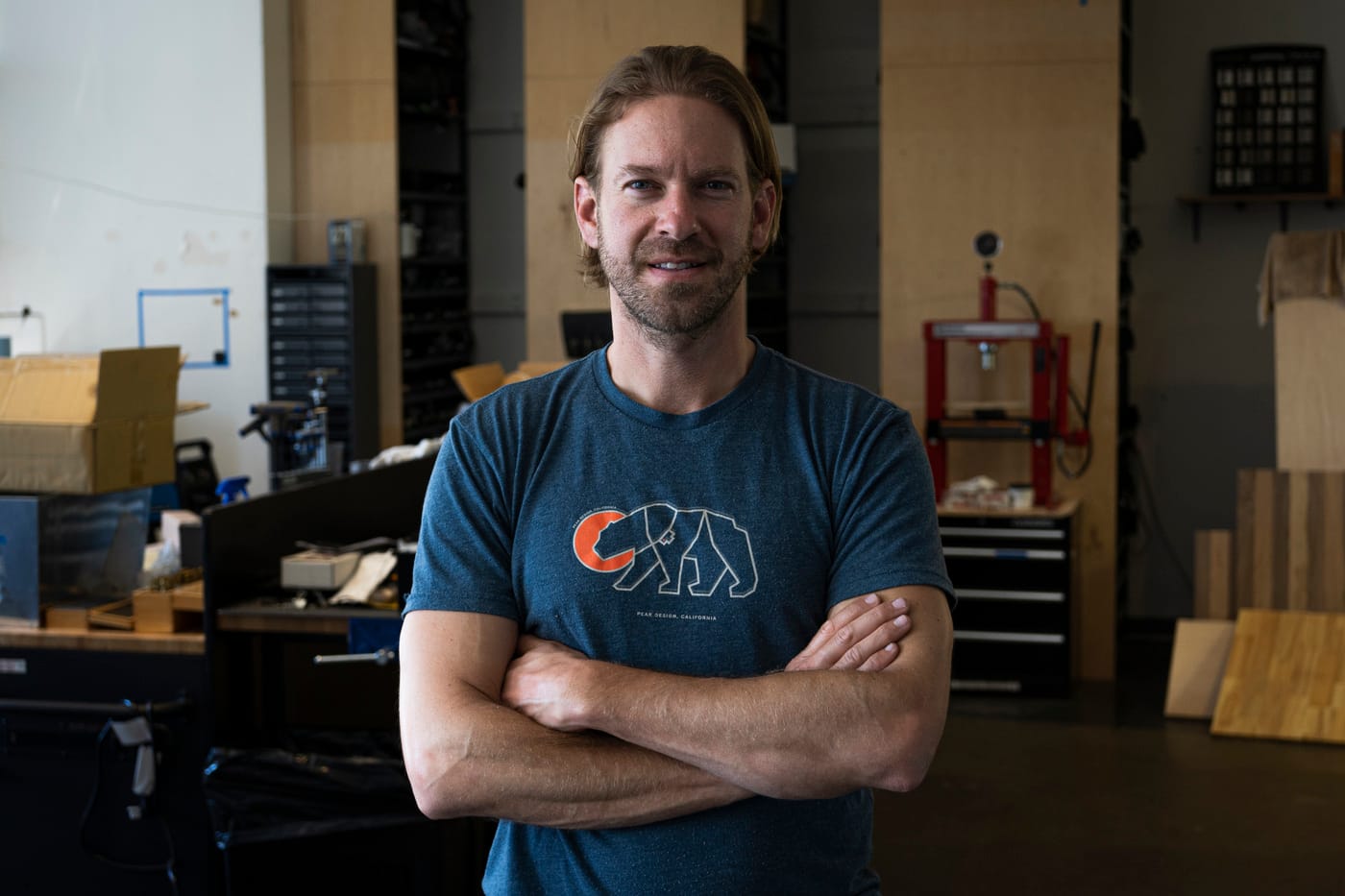
Peter Dering launched Peak Design nearly a decade ago through Kickstarter with a product called the “Capture Camera Clip.”It became the second most funded project on Kickstarter of all time. Since then, Peter and the Peak team have continued on with one major Kickstarter campaign per year, and in 2019 they were on pace to do $100M in sales when we spoke for the podcast.
But, a conservationist at heart, Peter has made sustainable practices and environmental action a core to the way that Peak does business. And, Peter shared with me Peak’s “formula” for giving back and mitigating their environmental impact to combat climate change.
“Here’s our formula. We’ve joined 1% for the Planet. 1% of sales is frankly a totally arbitrary amount of money, right? It doesn’t look at profitability, it doesn’t look at what type of business you’re in. It’s just this arbitrary line in the sand that says “1% of sales.”
It happens to be for us a both reasonable and meaningful amount of money to give. So we start there and from within that budget we then figure out how to best affect positive change.
…Then you’ve got to look at your supply chain and the most important things that you can do are reduce what you can, right? Use the least carbon-intensive protocols you can.
It starts there, but you’ve got to understand full well that changing the entire worldwide supply chain is not going to happen over night. So while you absolutely should take vigorous efforts to reduce your carbon footprint, be very well aware that you’re going to have a lot left over.
Secondly is to adopt social policies specifically in the factories where you’re doing the majority of your work that allow for happy and healthy and satisfied lives of the people who are doing that very, very hard work. That is another rung, right?
Thirdly is don’t choose materials and processes that are chemically unsafe, like be as conscientious as you can.
…And then the last step is offsetting that carbon footprint. And this is a whole other very big conversation, but we went through that journey of measuring our entire footprint all the way back to the extraction of raw materials to produce aluminum and refine it. All of that. We found our footprint was 20,000 tons in 2017 we also found that the average cost of a carbon offset at that time was three bucks a ton. So for one fifth of our 1% for the planet budget, we were able to offset the entirety of our carbon footprint. And that is both interesting and really begs the question of — if carbon offsets are that cheap right now, shouldn’t everybody be offsetting their entire carbon footprint as a baseline for responsibility?”
18. Madeleine Shaw, Founder of Lunapads & Nestworks, On How to Find Your Entrepreneurial Counterpart
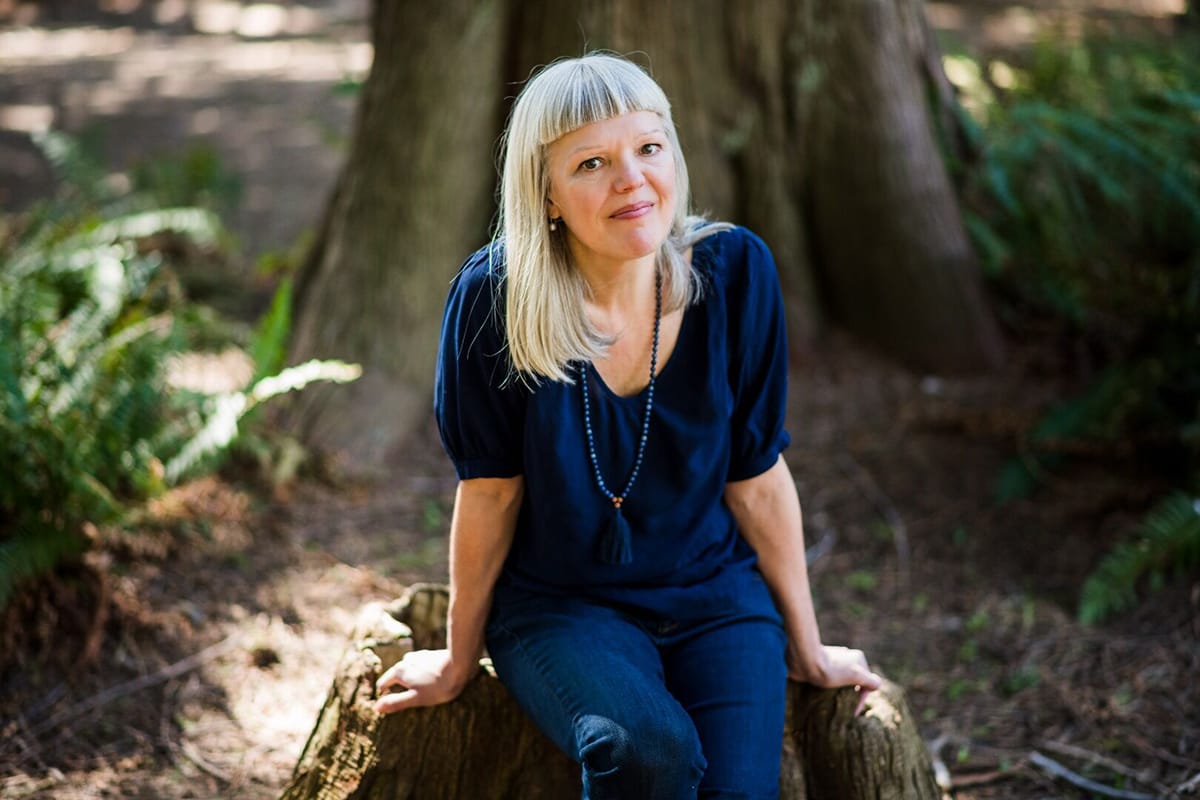
Madeleine Shaw is best known for founding the extremely successful mission-driven company Lunapads (now Aisle), which specializes in providing reusable and sustainable solutions for periods. Madeleine has since been extremely active as a social entrepreneur and member of her Vancouver community, founding an event series for adolescent girls called G Day and now a parent-friendly co-working space called Nestworks.
Madeleine was quick to admit that her success as a social entrepreneur would have not been remotely possible without her counterpart and business partner, Suzanne Siemens.
Madeleine shared how other entrepreneurs might be able to find a “Suzanne” of their own.
“The way you find them is you tell them a great story about what you’re trying to create. Then they fall in love with it. You’re super nice to them, and you’re respectful of them, and you listen to them. You make them part of it, and you allow them to be part of it, and you build it together.”
19. Chris Chancey, CEO of Amplio Recruiting, On the Power of “Playing a Part” in a Compelling Story
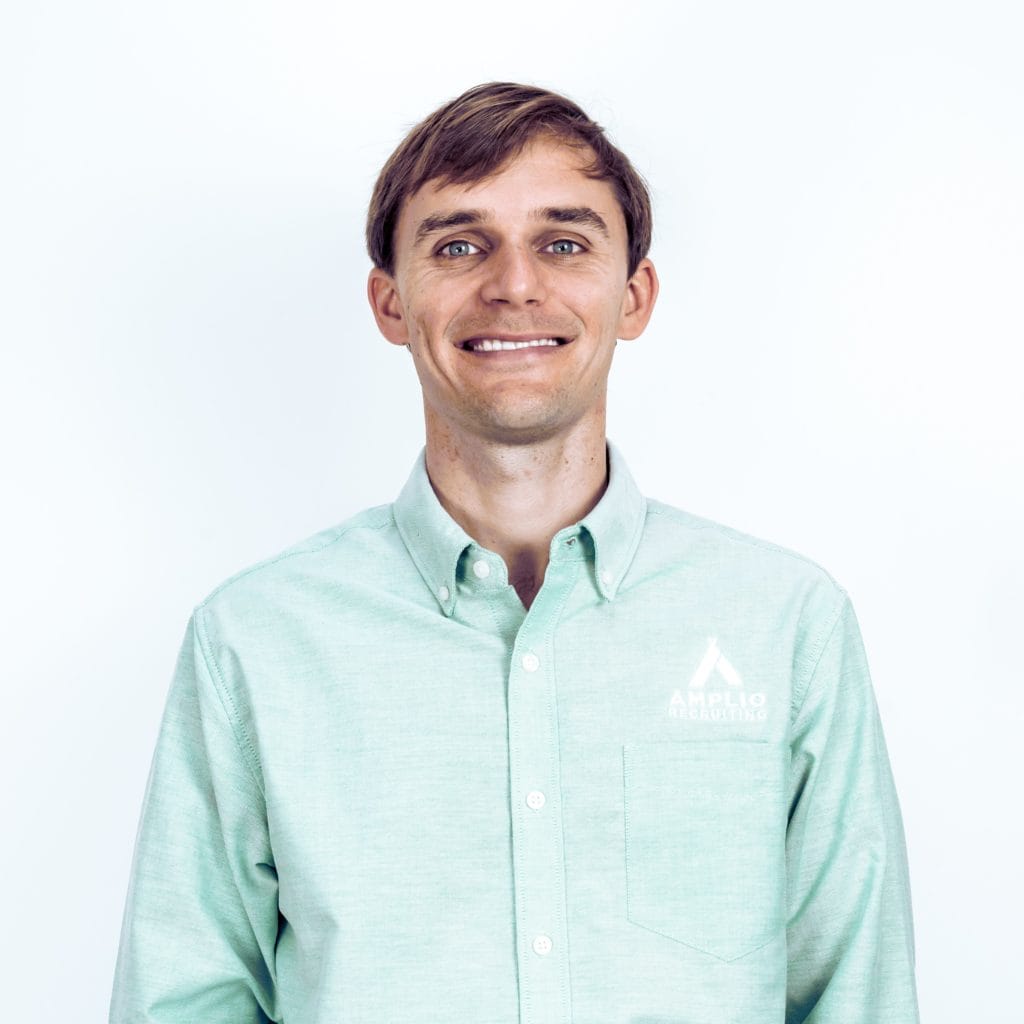
Chris Chancey is the CEO of Amplio Recruiting, a staffing agency that places refugees into jobs with U.S. companies. Chris started Amplio after he and his wife moved to a refugee community outside of Atlanta, GA, and familiarized themselves with the stories of their new neighbors.
Hoping to find a way to help, in a means that would be sustainable, Chris’ staffing agency, Amplio Recruiting was born.
While the success of Amplio thus far could be surely attributed to providing an excellent solution to U.S. companies’ chronic problems (finding good people), Chris also believes that Amplio’s growth can be attributed to them being a part of such a compelling and engaging story given the issues that are facing us locally and globally.
“As people learn more about what’s happening in the world around the refugee crisis, and especially as the U.S. and our government make certain policies that in the case right now are not very beneficial, not very in favor of the refugee community, there are companies that are now educated about who a refugee is, their legal status, and their ability to work. Companies call us, saying, ‘We would love to be a part of their story.”
20. Casey Ames, Founder of Harkla, On Why His Company Seeks Out to Make Mistakes
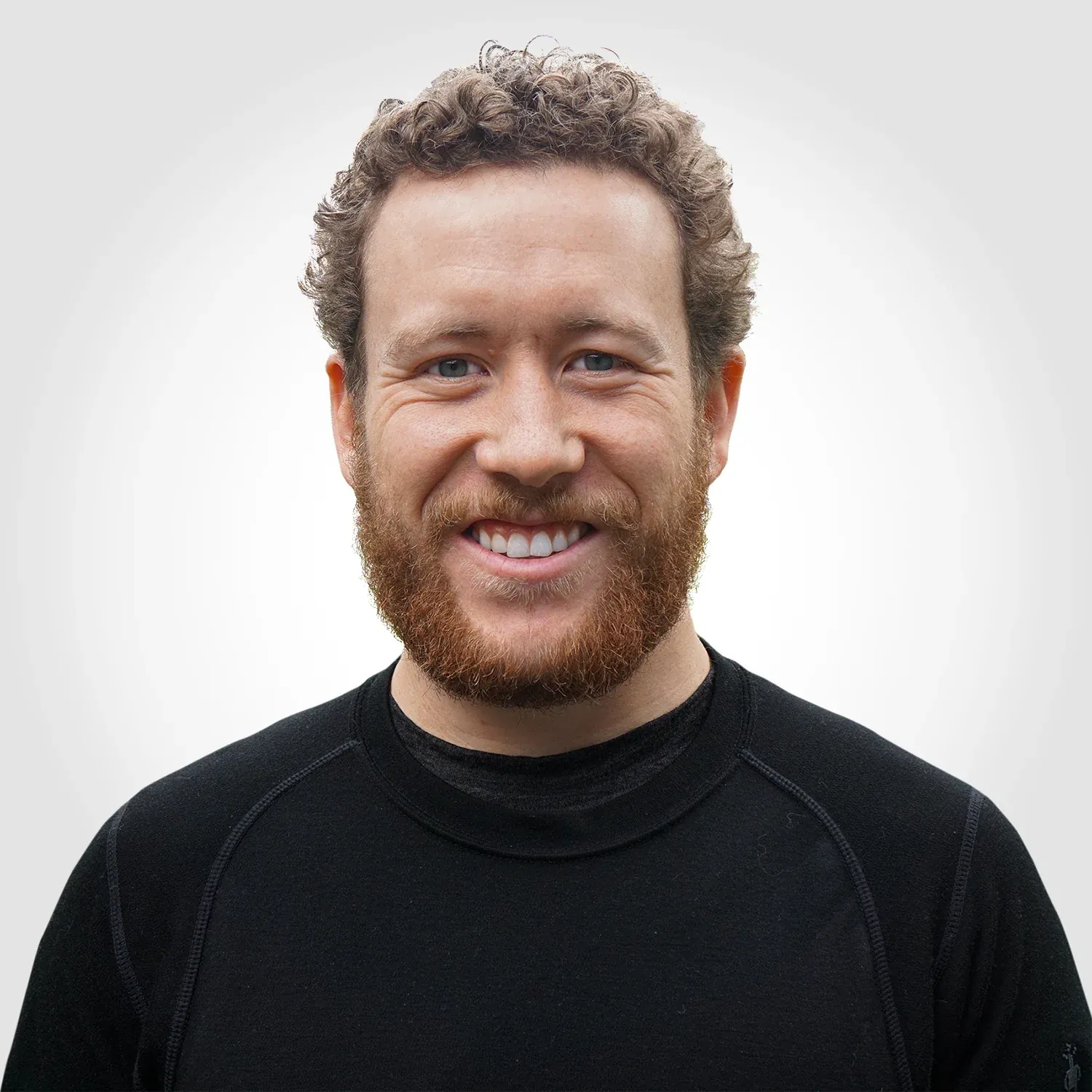
Casey Ames, my brother, is the Founder of Harkla, an e-commerce company that manufactures and sells products that support families with children who are living with special needs. Three years since its founding, Harkla hit over $1M in revenue—achieving extremely rapid growth.
In our episode, Casey dove deep into his and Harkla’s systemic approach to building their company and how that approach influences their thoughts on making mistakes.
“I always try and instill the mindset in my employees that it’s perfectly okay to make mistakes, but we can’t make the same mistake twice. It’s only an issue if we don’t learn from the mistake. And so we make mistakes all the time and it’s perfectly fine because they’re fail-safe. We try and do pre-mortems before we do a big experiment of how could this go terribly. And then we try and cap our downsides.
But while we are systematic, we’re always trying to make mistakes and then go back and fix the system. So [we ask ourselves], “Where did this break down? What didn’t work?” It’s taking a scientific method approach to your company— coming up with a hypothesis, then let’s test it.”
21. Henry Burgess-Marshall, Director of Marketing with Canniloq, On Where a Call to Influence Change Comes From
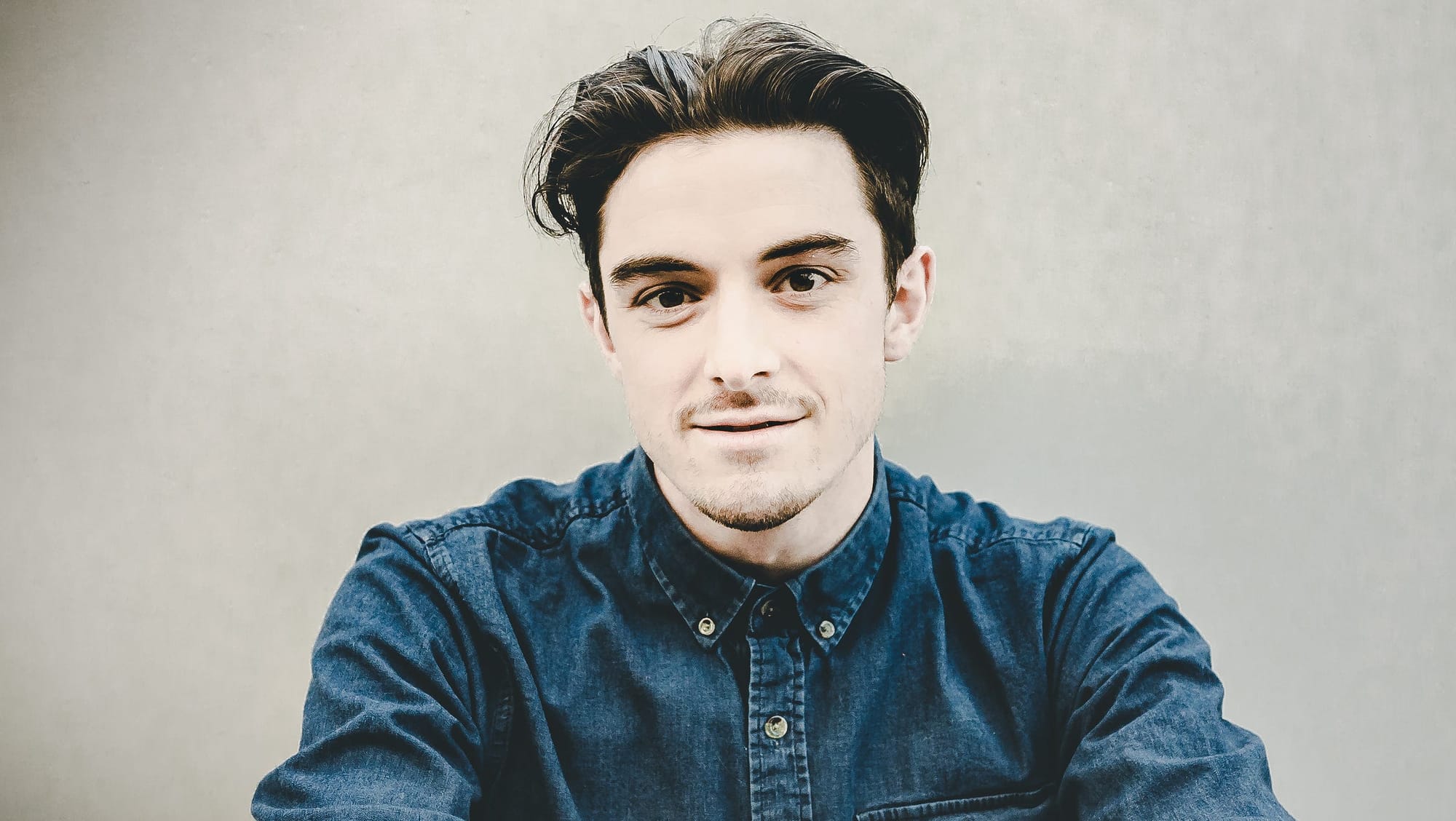
Henry Burgess-Marshall and the Canniloq team manufacture high-end stash containers for the safe consumption and storage of cannabis. At the core of Canniloq’s operations is the social mission of righting what seems to be the moral wrongs grossly revealing themselves as marijuana is legalized throughout the United States.
This was the impetus for Canniloq’s “Unloq the Truth” campaign, where they are dedicating themselves to raising awareness, support, and resources for those who have suffered or are suffering from antiquated drug laws while a newly legal industry booms.
In our podcast recording, we talk about the origins of Henry’s interest and care for this issue of drug incarceration and the clear discrepancy, as this issue affects people of color disproportionately more than others.
“The real catalyst [for me] was getting informed and educated. Some people have read the book, the new Jim Crow, maybe they’ve seen the Netflix documentary, 13th, about the 13th Amendment and the mass incarceration of people of color in this country. I was working at an addiction treatment center here in Seattle, and it was for youth boys ages 13 to 18.
It was really a deferment from youth jail. They go through the four month treatment and if they make it through there, they don’t have to serve any time for whatever drug charges they had. I saw a lot of people of color and not very many white people. I knew from growing up, that white people were using drugs at very similar, if not more often rates.
That really got me thinking, as I was learning all this information too. I was applying it to what I was seeing. And then I was not always the perfect standup citizen, and as I made mistakes, I kept getting let off the hook and given second chances in life while people who didn’t look like me weren’t.”
For more from Henry and consciousness in the cannabis industry, listen here.
22. Andy Freedman, Co-Founder of Miles4Migrants, On the Need & Approach for Smart People to Solve Massive Problems
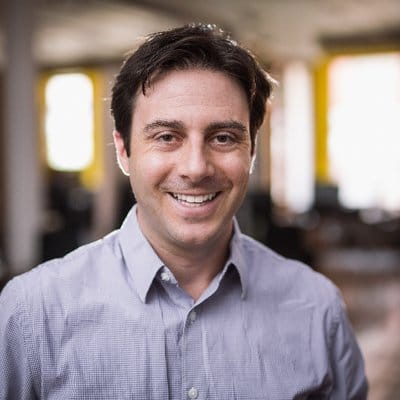
Andy Freedman is the Co-Founder of Miles4Migrants, a nonprofit that takes donated airline miles and flies migrants and refugees wherever they need to go to be reunited with their families.
What started as a one-time project with some airline miles enthusiasts has turned into the full-blown nonprofit that you see with Miles4Migrants. As of the end of 2019, the Miles4Migrants team has booked over 2,000 flights to reunite refugees with their families—with many more to come.
Andy gave us some guidance on how others can go about finding “their problem to solve.”
“For me, it was supporting refugees and asylum seekers, but I think whatever the passion is, there is a need for smart people to be thinking about these massive problems.
My other advice is to not try to solve the entire problem, because you will fail miserably. There is a reason they [these problems] are massive.
And so find, a piece of the problem that you feel like you are best suited for or have an idea that you think could help and start there.”
23. Andrew Glazier, CEO & President of Defy Ventures, on Why Social Justice Movements Must Start with Connection
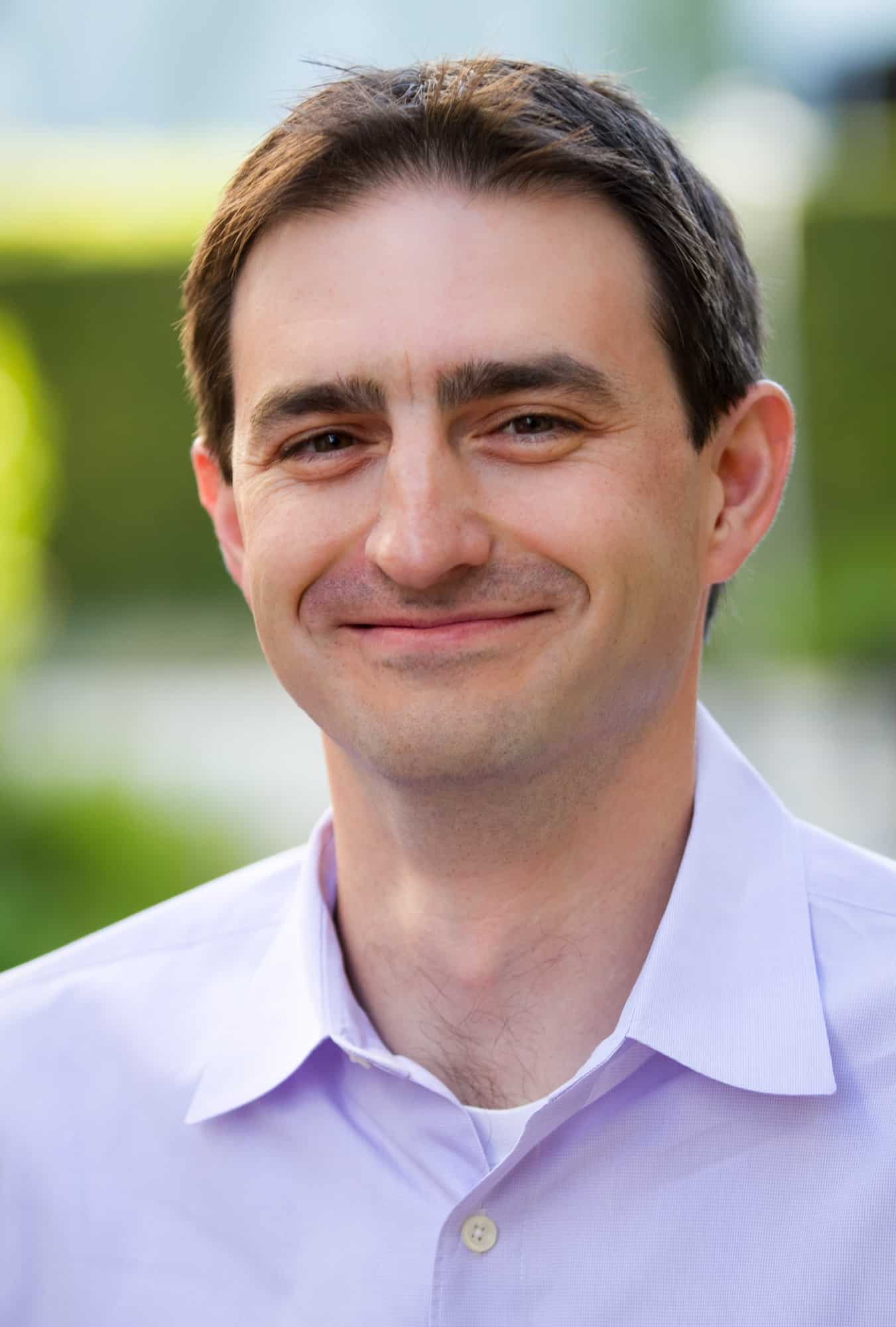
Andrew Glazier and the Defy Ventures team offer entrepreneurship and job training programs for currently and formerly incarcerated men and women in seven states across the United States. They have enrolled over 5,000 EITs (entrepreneurs in training) in prison and in their post-release program.
This work has led to phenomenal results, with a one-year recidivism rate at 7.2% compared to the national average of 30% and their employment rate for post-graduates of their program is at 82%.
In our podcast recording, Andrew talked about the success of Defy, and the successes (although with a long road ahead) of this social justice movement as a whole.
“I believe that no social justice movement can be successful without person-to-person interaction and people having that human experience. And that’s why we work really hard at making this issue accessible to people, particularly in the business community, to come with us and see what we’re doing.
And more importantly, sit across from somebody who is incarcerated or formerly incarcerated and recognize that we’re not that different.
And when you’re able to make those connections and cut through that sort of fear and emotion, you can start to have a rational conversation about it to say, “look, if someone’s completed the Defy program and they’ve gone through seven months of work and 1200 pages of curriculum in 10 to 15 hours a week, and at the end of it they were able to stand up in front of volunteers and pitch their business.
That’s hard to do.
And maybe we should be thinking about what a fair chance looks like for somebody who has really shown the wherewithal to turn their life around and transform themselves.”
Listen to Andrew to learn how Defy Ventures is addressing the issue of mass incarceration and reducing recidivism.
24. Lindsey McCoy, CEO of Plaine Products, on How Their ‘No Plastic’ Personal Care Business has Taken Off
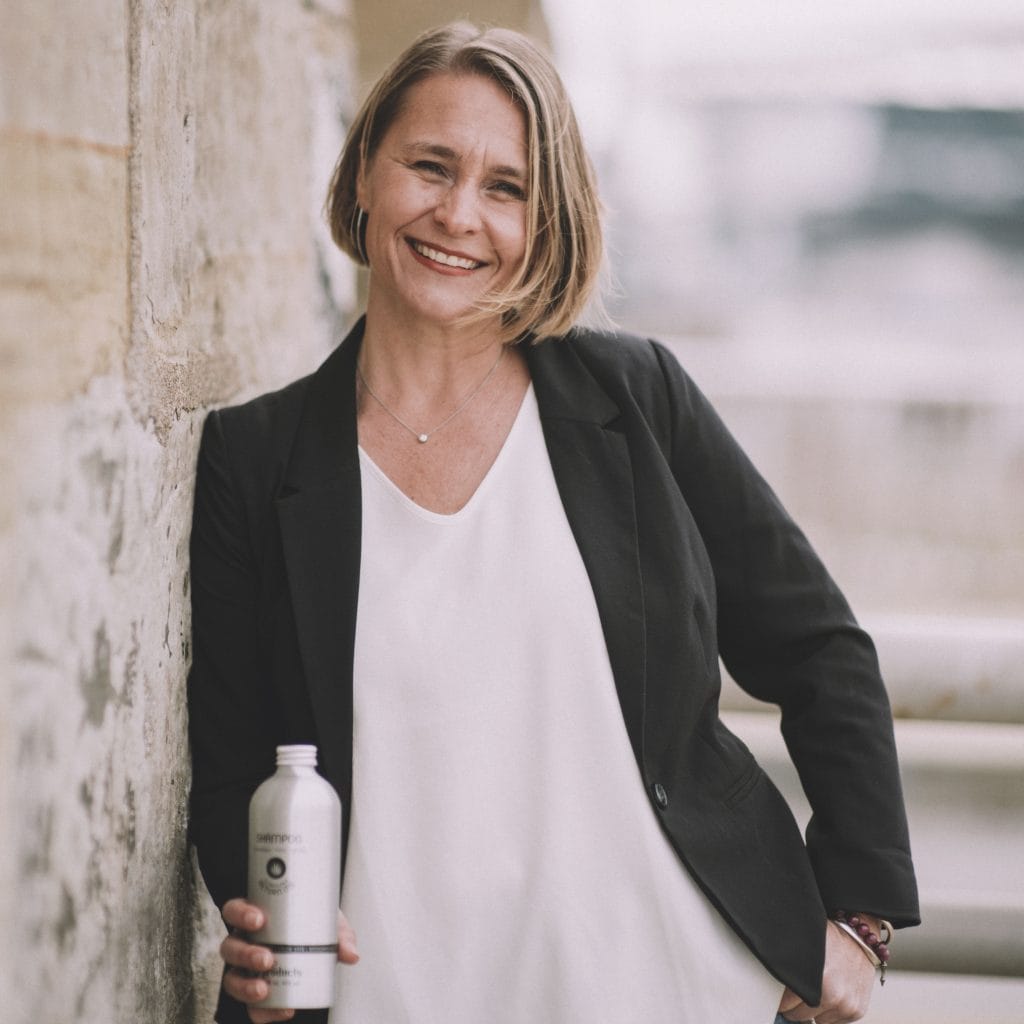
Visit Plaine Products’ home page and you’ll be greeted with the phrase, ‘Personal Care Without All The Plastic.’ Founded in 2017, by Lindsey McCoy and her sister Alison, Plaine Products offers shampoos, conditioners, and more in refillable containers to keep single-use plastic out of your bathroom.
At the time of our initial podcast recording, Plaine Products were on pace to hit over $2M in sales and divert over 100,000 plastic bottles from landfills—in 2019 alone!
Lindsey was gracious enough to join me for a recording and share with the Grow Ensemble listeners what she felt has contributed to their rapid growth. You can also check out our Plaine Products review for even more insight into the company.
“I think, one, is that we are legitimately solving a problem for some people, we were able to move into a space where providing a convenient alternative to single-use plastic with good quality products, there’s just not a lot of people doing it so I think that has helped.
There’s not a lot of people searching for refillable shampoo, or at least there wasn’t when we got into it. But for sure, having something that sets us apart from our competitors has been helpful.
Having a mission has been helpful. I think people are much more willing to help us spread the word, tell their friends about us because we have a purpose and because we’re trying to do good.
We really have not had a lot of funds to put into marketing. We’ve had incredible word of mouth…”
25. Liza Moiseeva, CMO & Co-Founder of GlobeIn, on Focusing on Building a Community to Scale the Good Your Business Does
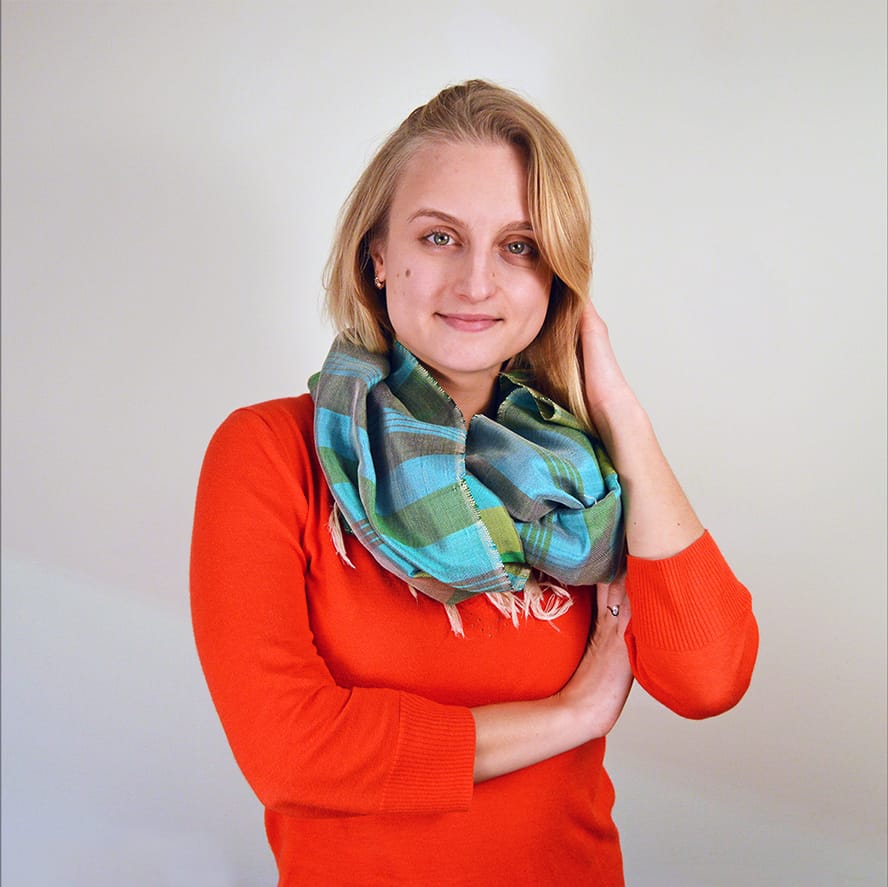
Liza Moiseeva is the Chief Marketing Officer and Co-Founder of GlobeIn, a social business that offers a monthly subscription “artisan” box that specializes in fair trade and ethical products to empower artisans in the developing world.
Originally from Russia, collegiate swimming brought Liza to the United States. She’s continued to channel that competitive spirit for her appetite and ambition to use business not just make money but also solve significant social problems.
Liza is very generous and open with her insights and advice for other ethical brands and shared her expertise on our podcast urging new brands to focus on building a community around their niche.
“If I were a new brand, and this is what I tell new brands right now, start building a community before you start selling.
That’s how all of the big successful brands’ stories are, like Glossier, it started as just a blog. You build a community, you build your expertise and then you sell it.
Maybe you don’t want to be an influencer yourself, But [in whatever way, on whatever platform] even before you have a product, start building a community of followers…So when you have a product you already have someone who will be interested in that.”
For more from Liza on launching a new ethical brand & scaling impact, listen here.
Travel
26. Tim Lara, Owner of Hawaiian Paddle Sports, on How Guides Can Turn Tourists into Advocates
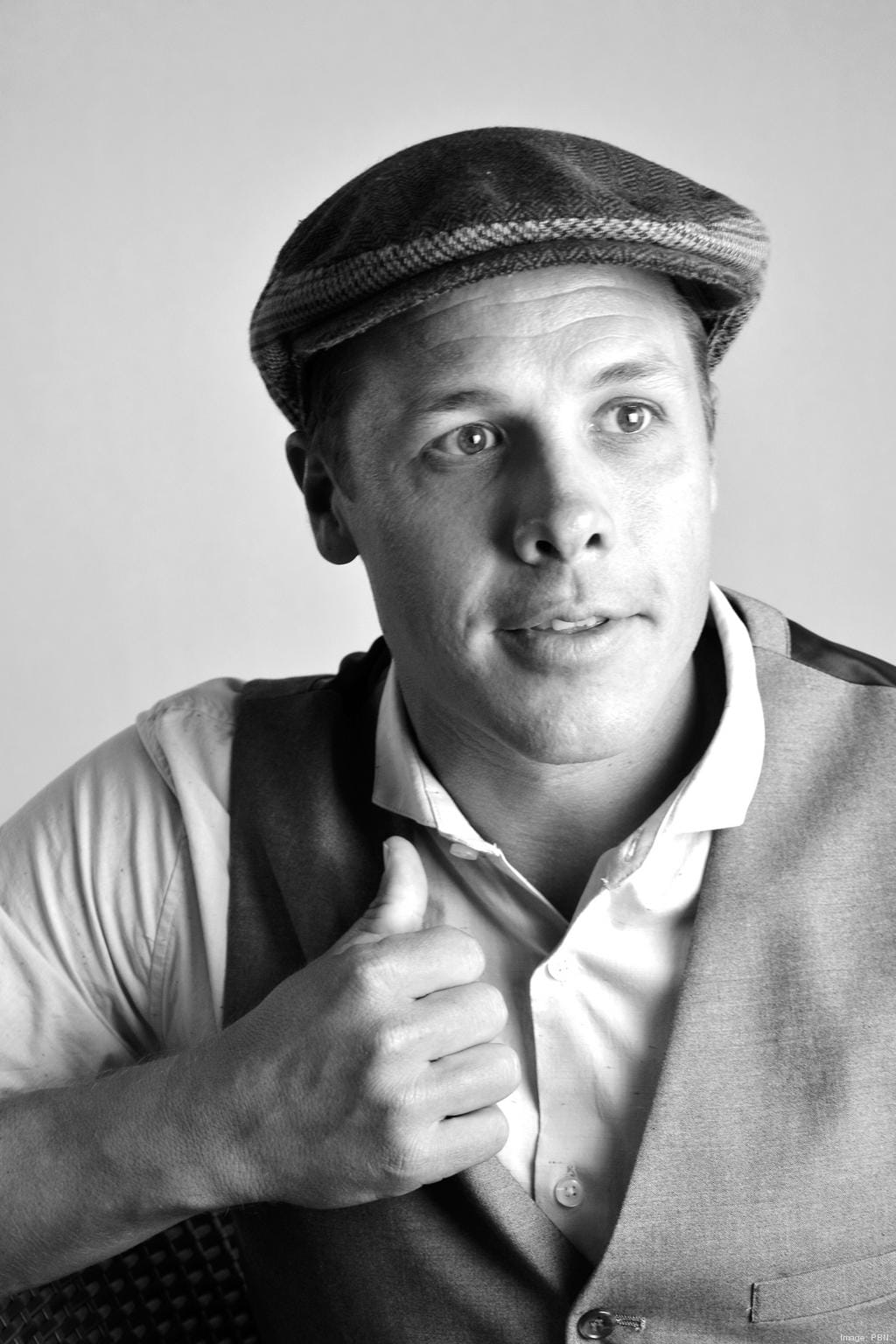
Tim Lara is the Owner of Hawaiian Paddle Sports, an Eco-Tour certified B Corporation located on the island of Maui. Tim has a tremendous passion and respect for the natural life, and culture of Maui as well as an engine that just won’t stop.
Tim listed the many activities he’s involved himself in, in Maui, in our podcast, as well, he shared what seems to be both an opportunity and duty for his guides as they take visitors on tours of the natural areas in Maui.
“We have this captive audience, if you will, where we have them for a period of time. And so if we can use that time to help them have a deeper appreciation and understanding of the marine world and Hawaiian culture, then that’s really what we’re looking to do.
Jacques Rousseau said people protect what they love, right? And so if we can help people fall in love with these things, then they’re going to grow up and help protect them.”
To hear more from Tim on running an Eco-Tour company & advocating for the environment, listen here.
27. Adrianne Chandra-Huff, of Bodhi Surf + Yoga on the Need for Environmental Stewardship in the Tourism Industry
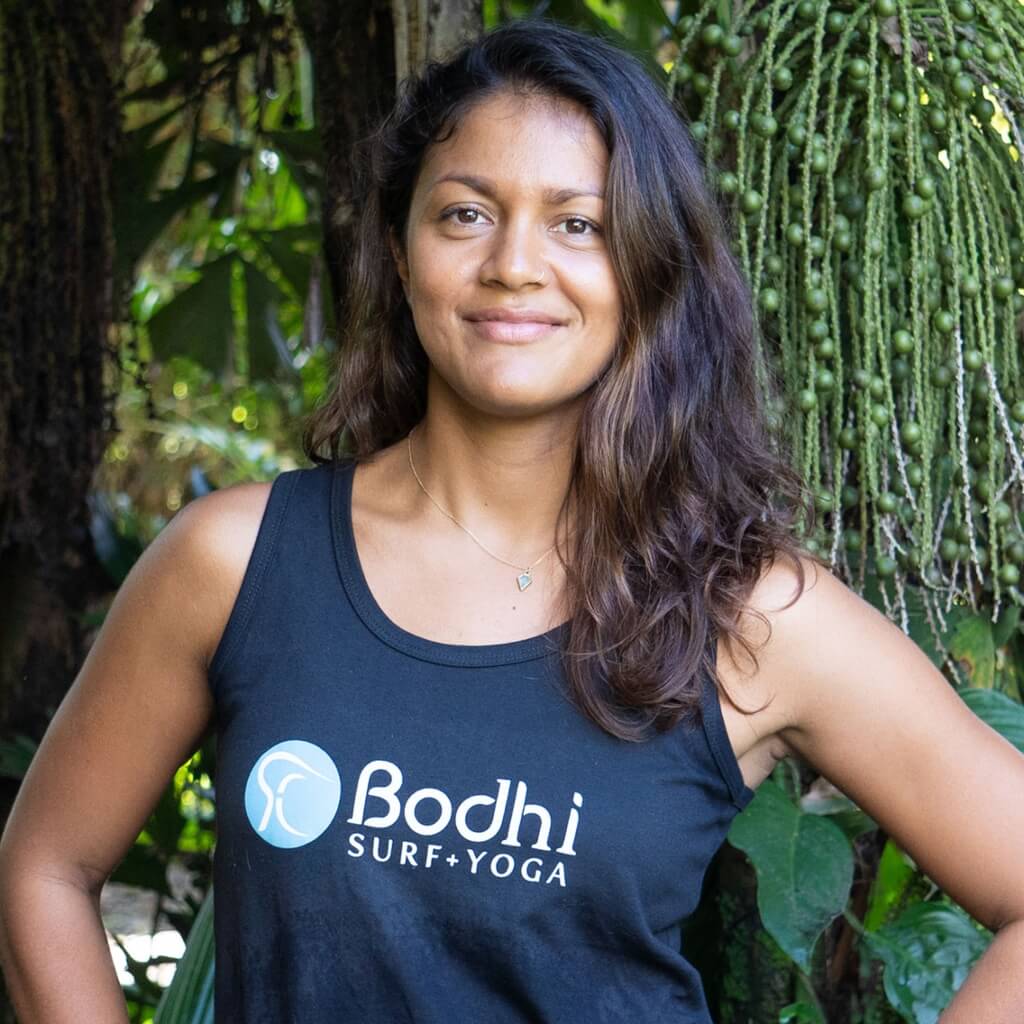
Bodhi Surf + Yoga is a certified B Corporation based in Uvita, Costa Rica. They teach their guests how to surf, practice yoga, and help them learn about their local area in Costa Rica.
Adrianne, who I connected with at the B Corporation Champions Retreat in 2018, joined me for an episode where she shared the trajectory of Bodhi’s growth and evolution as a model for sustainable tourism and her understanding of the obligation all businesses in the tourism industry have to mind and preserve the local region they benefit from…
“As a tourism company, you are benefiting from the very resources that draw people to you in the first place. So, that’s to say, if it were to become super polluted down here, people probably won’t come anymore.
So we have, I think, a moral and fiduciary imperative to take care of those very entities that we benefit from. But also, I just think it’s cool that we do, you know, because we live here and we’re benefiting from it more than just as individuals, we’re benefiting from it as a business.”
For more from Adrianne on the obligations of the tourism industry (and more) click here.
Professional Services
28. Russ Stoddard, Founder of Oliver Russell, on Success in Social Entrepreneurship & the Sense of Urgency to Do Good
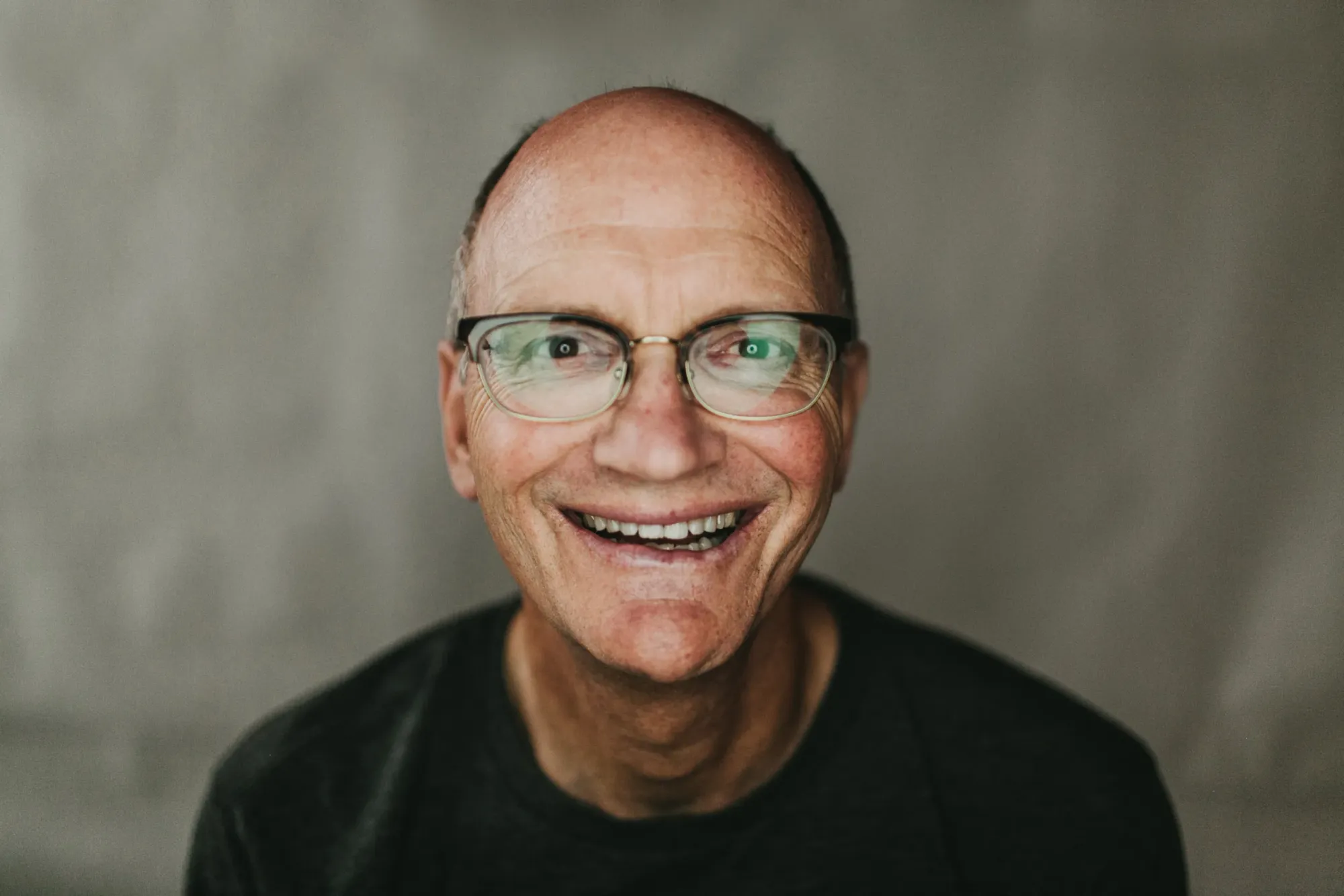
I first came across Russ through his book Rise Up: How to Build a Socially Conscious Business, where he introduces the concept of social enterprise and social entrepreneurship. In late 2018, I visited Russ at his office in Boise, Idaho for a podcast recording. Russ’ wisdom, generosity, and advocacy for the sustainable and social business model shined throughout our chat.
Russ explained why a positive impact is more appropriate compensation than just a paycheck and shared how he manages his ever-growing portfolio of business and impact involvement.
“I guess some of the compensation I derive from the business is actually the meaning I’m able to create through it. Whether it’s with the folks who work here at Oliver Russell, whether it’s in the community with stakeholders, for me it’s just like earning a paycheck, making money is not enough for me. And making money is actually for me, kind of a consequence of doing good in the world, I wanted to create a business that would actually make our community a better place and do that intentionally so.”
[As for managing priorities]: Constant challenge. Focus. Some days I’m good at it, other days I’m not, I kind of operate with the universe in mind. Oftentimes it creates opportunities that come up very opportunistically and I will jump into those not unlike creating Oliver Russell. So, I wouldn’t necessarily say I’m the best at managing my own time, I feel a sense of urgency to accomplish a lot and hopefully be an initiator or co-collaborator where I can and leverage other people’s efforts in the world.
A co-founder of a benefit corporation here in town, it’s funny, a couple of weeks ago, we’re both in the bathroom together, standing at the urinals and he said, “Russ, how in the hell do you get everything done that you tackle?” I said, “Not very well…” So you know, I’m not regimented in many ways. I get up at four, I go to hard until nine some days I’m, as I said, I’m focused and other days I’m kind of scattered. I’ll take action over just thoughtful planning any day, that’s what I’m built for.”
Want to hear more from Russ on his social entrepreneurial success? Listen here.
29. Jessica Kellner, from Bark Media, on Building Community & Support Around Your Organization Through Authentic Storytelling
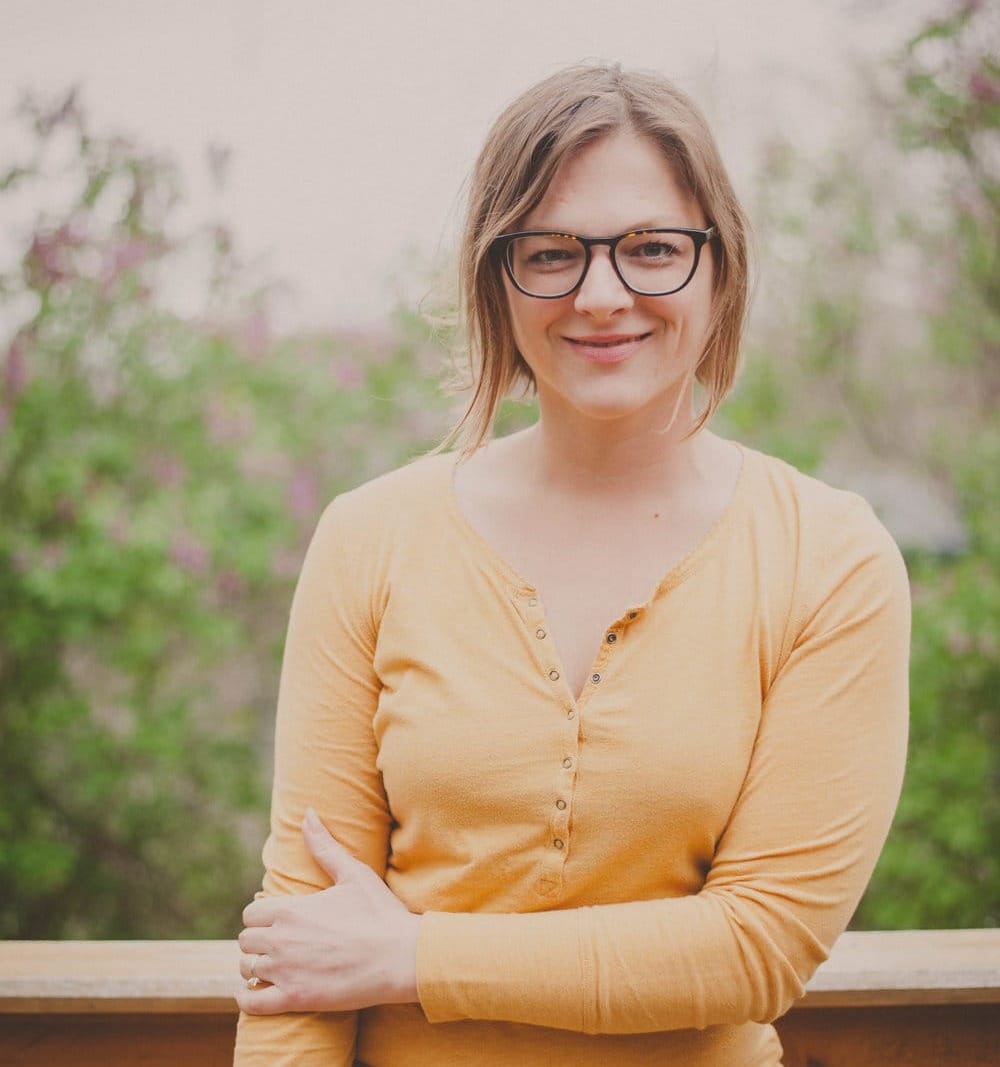
I briefly connected with Jessica at my first B Corporation Champions Retreat in New Orleans.
Jessica and other folks from leadership on the Bark Media team hosted a wonderfully insightful breakout session where they shared strategies for other B Corporations to get started telling their own stories and collaborate with others in the B Corp community to do so. Luckily for us, following this social impact conference Jessica joined me for an early episode of the podcast.
Jessica dove deeper into these topics of storytelling and community-building and connecting with “your” people in our chat,
“We really believe in authentic storytelling and we believe that the way to build a community, to build support around yourself as an organization or as a movement is to tell that authentic story. And frankly, that only works if you have an authentic, interesting story to tell.
…there are a lot of people out there in the world that want to support work that is making a difference, that want to support companies that are running themselves in certain ways that want to support movements to improve our world. It’s telling your authentic story so that you can find the right people who are going to support you because they’re out there. It’s just that they don’t know about you right now.”
Want more on authentic storytelling and community building? Listen to Jessica’s episode here.
30. Chris Hutchinson, CEO of the Trebuchet Group, on the Rewards of Personal Development
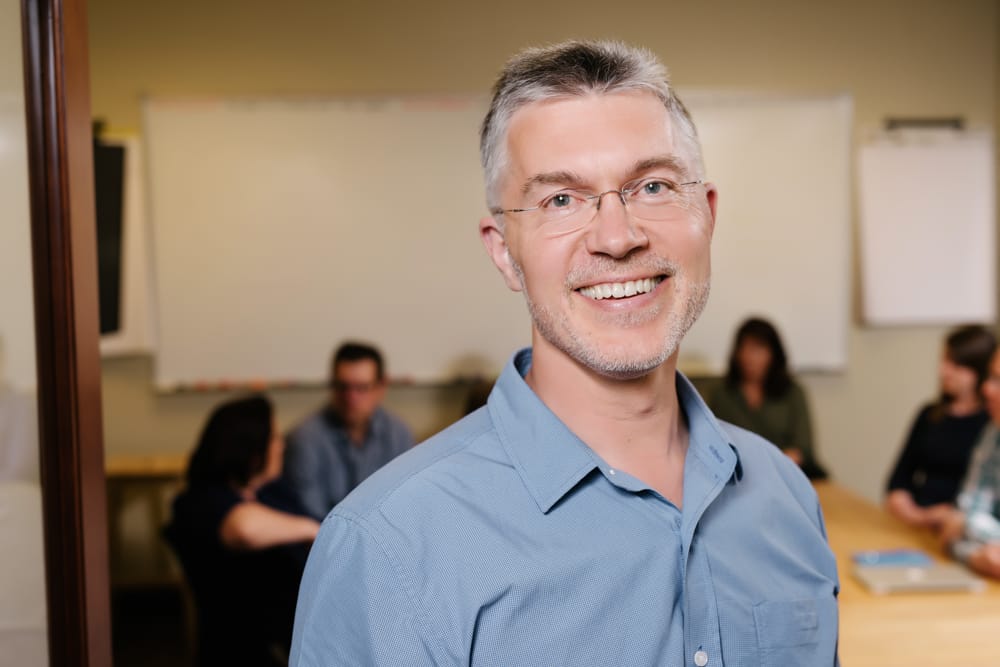
My conversation with Chris was inspiring—a true example of a self-aware, reflective leader. Chris and the Trebuchet Group are deeply committed to personal development and expanding the leadership capacities of individuals and organizations and that came through in our recording.
We talked about leaders who create other leaders, the self-awareness that’s required to be a leader, and Chris’ experience writing his complete leadership “playbook,” Ripple: A Field Manual for Leadership that Works.
Early on, Chris opened up about the rewards of focusing on developing yourself.
“Working on yourself first is the most rewarding work you’re going to do. Not only for you, but for everyone around you.”
Want to hear more about developing leadership skills & self-awareness? Listen here.
31. Dave Fortson, CEO of LOACOM, on the Importance of Passion & Persistence to “Stay in the Game”
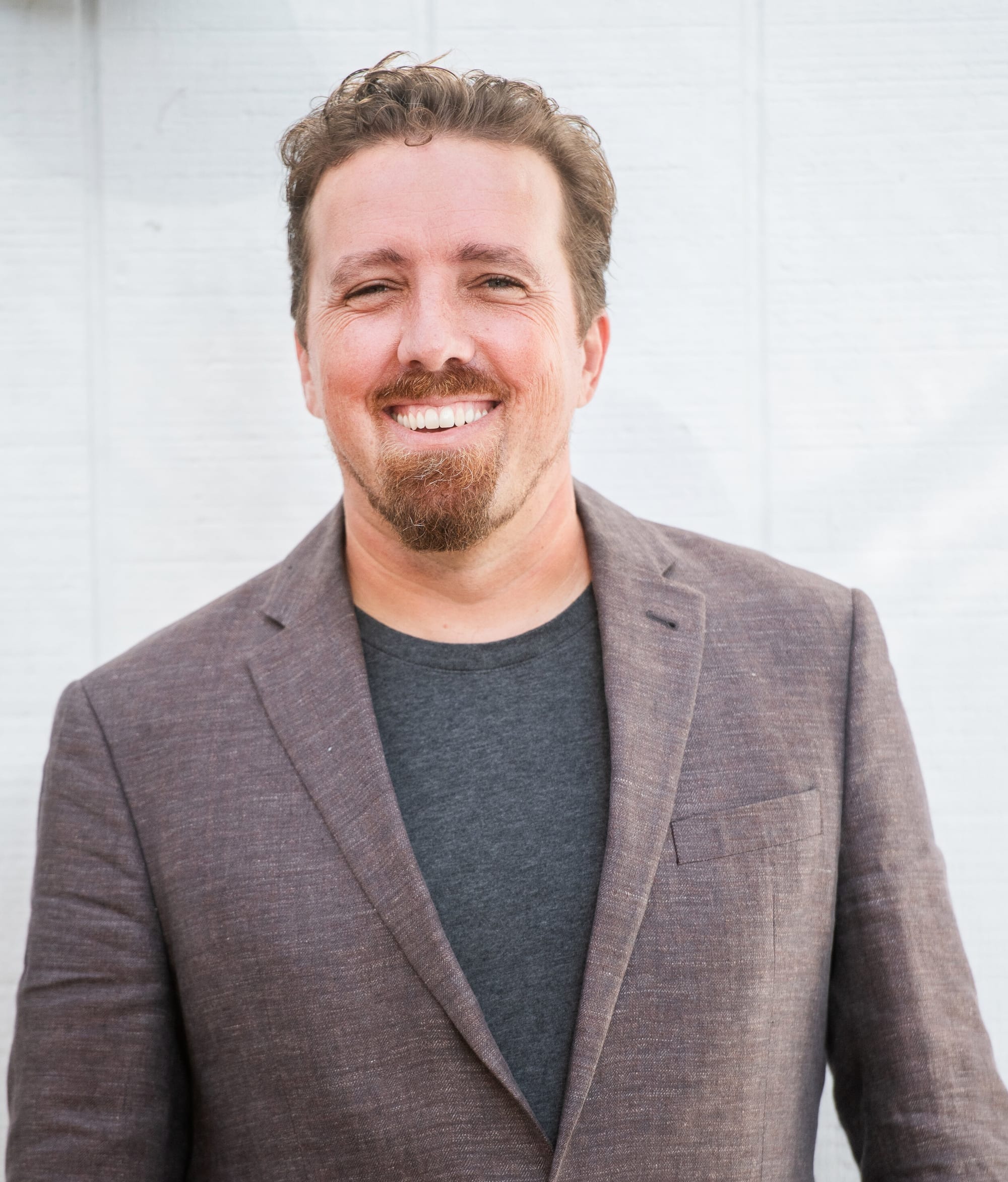
Dave, his business partner Eric, and the entire LOA team, have a true passion for the work they do, and they have a good time doing it. LOACOM is an agency in Santa Barbara, CA with expertise in building movements. They support organizations who want to improve the world to develop better products, services, and fully express their mission.
I’ve had the great privilege to partner with these folks, working to amplify the mission of better businesses like All Good Products, and they’ve continued to impress with their passion, strong and flexible company culture, and commitment to serve their client partners.
On our podcast, Dave revealed some of the core ethos of LOA as a company by sharing some reflections as to how LOA initially survived, and now thrives with a specific position in the social business market space.
“Passion for what you do will pull you through the worst times. If you love it, it really doesn’t matter if the economy tanks or if you’re having a bad week or if you lose a client or your product sucks or whatever. You’ll just keep innovating and creating until you find the groove that’s best for you. But that is defined by passion.
Persistence, I think is in the same vein as passion. You’re going to run into a bunch of walls and you’ve got to go around, above, below or through…Sometimes you’ve got it and sometimes you don’t. Similarly, I think it’s related to both passion and persistence is that, a lot of times, it’s who’s left.
And if you really love what you’re doing, and you continue to believe in your work and you continue to innovate and evolve and be open to that, then oftentimes you’ll be the last person standing and you’ll see kind of market growth around what you do just because of that.”
32. Ryan Honeyman, Partner at the LIFT Economy, on Why Our Work Should Focus on the Most Marginalized to Make Systemic Change
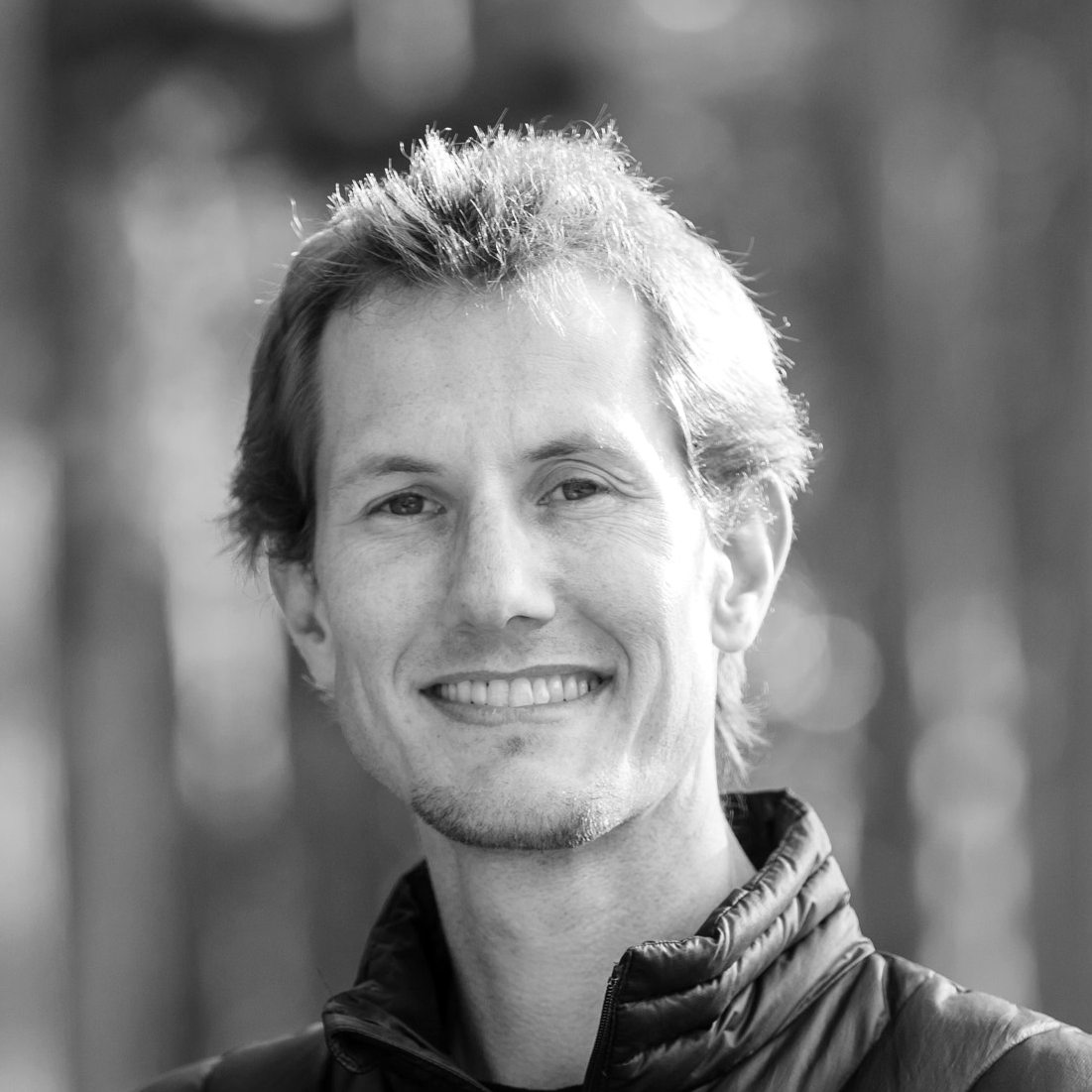
Ryan Honeyman is a Partner & Worker/Owner at the LIFT Economy, an impact consulting firm based in San Francisco. In April of 2019, in partnership with Dr. Tiffany Jana (from TMI Consulting), Ryan released The B Corp Handbook, Second Edition: How You Can Use Business as a Force for Good.
Ryan joined me on the podcast to chat about the new inclusions in the book and this new determined focus members of the B Corporation and social innovation and social business communities should take towards focusing their work on the most marginalized people if we want to actually effect systemic change.
“If you center the most marginalized people in your work, then everyone benefits, because if you are always thinking about how does this affect the most marginalized, then inherently you’ll be considering all the folks above the most marginalized.
And so we’ve been putting this question to ourselves, if we focused on benefiting low income communities of color with our work, what would that change about how we do consulting, how we think about business, and I think that’s a question that’s going to be spreading more in our space. If we’re not centering folks who are part of the most marginalized communities in the U.S. and globally, then we’re always going to be doing something that’s not quite as effective at meeting those people’s needs or everyone’s needs.
I think with B Corps, that’s one conversation we’re trying to bring in as how can we really center these groups in all of our decision making and bringing them into the decision making process. Otherwise, we’re just going to be guessing what people might want and the impacts will be marginal as compared to what could be.”
33. Emily Lonigro, President & Founder of LimeRed, on Doubling Down on Community to Succeed with Purpose-Driven Business
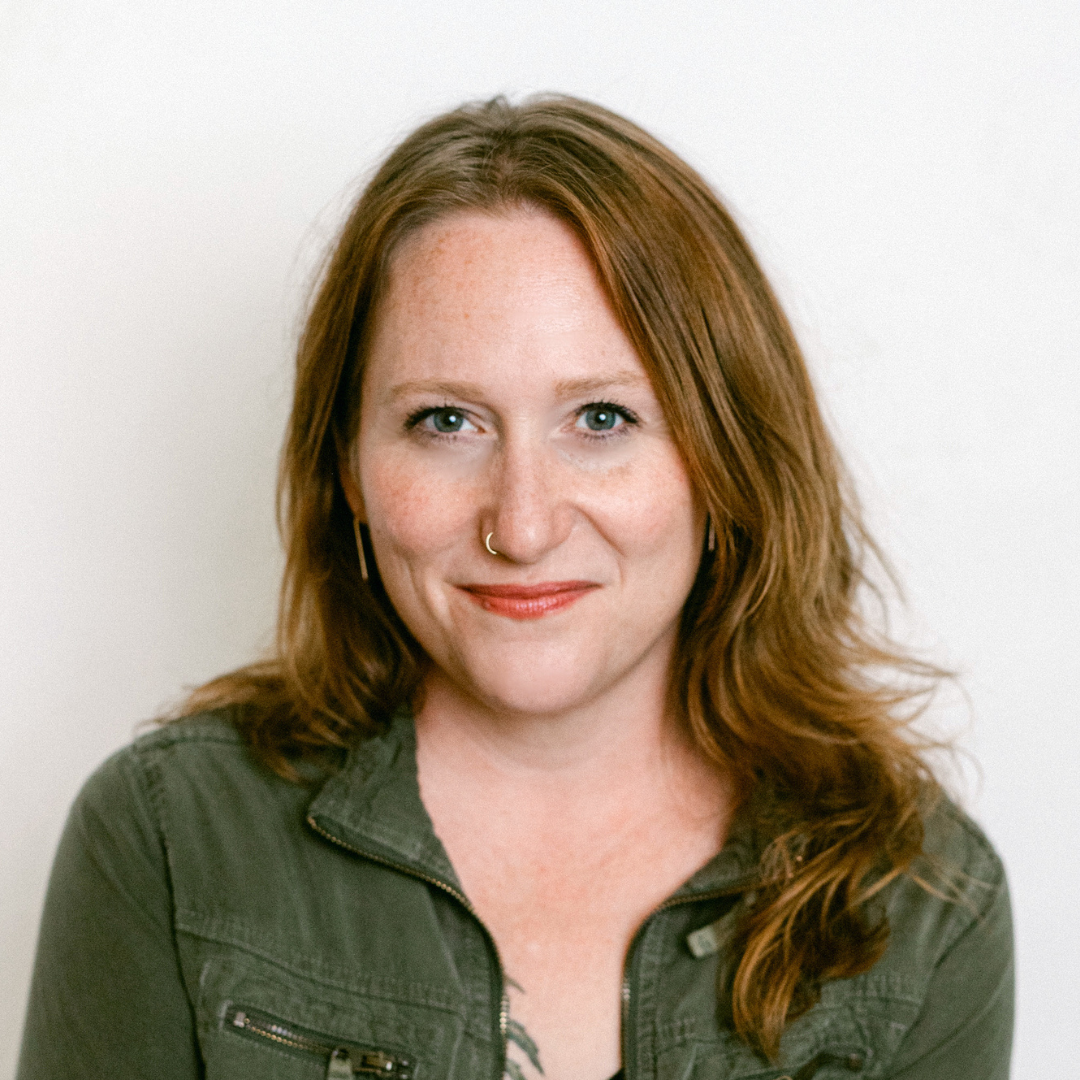
Emily Longiro Founded LimeRed with a dedication to use her skills and expertise in design for good. And, now 15 plus years in business, she and the LimeRed team have done just that. Serving not just nonprofits, but social enterprises, and mission-driven businesses of all kinds, they strive to use design to make tangible change.
But, of course, that’s not easy for anybody. Business and impact pose an inherent greater challenge than just business, right? For Emily, it’s been community that’s allowed her to be a part of “writing this new rule book” of purpose-driven business since 2004.
“A few years ago when I was at a retreat for conscious business leaders, that was something that came up a couple of times[, the added stress of integrating purpose in your company]. We were not talking about our own mental health and the stress we put on ourselves to do this thing that is so nebulous without rules, and we are all here writing this rule book together.
…And the only thing that I’ve ever figured out so far to do, is to really double down into my community and get really involved and to make really, really true and honest relationships with other business owners…So yeah, it’s a different experience and I think that we’re all trying to figure out how to do it together and well, and I don’t think we’ve quite figured that out yet. But. I am very optimistic.”
To hear more from Emily on community and using design to make an impact, listen here.
34. , CEO of Mightybytes, on How Digital Agencies Can Think About Making Positive Change
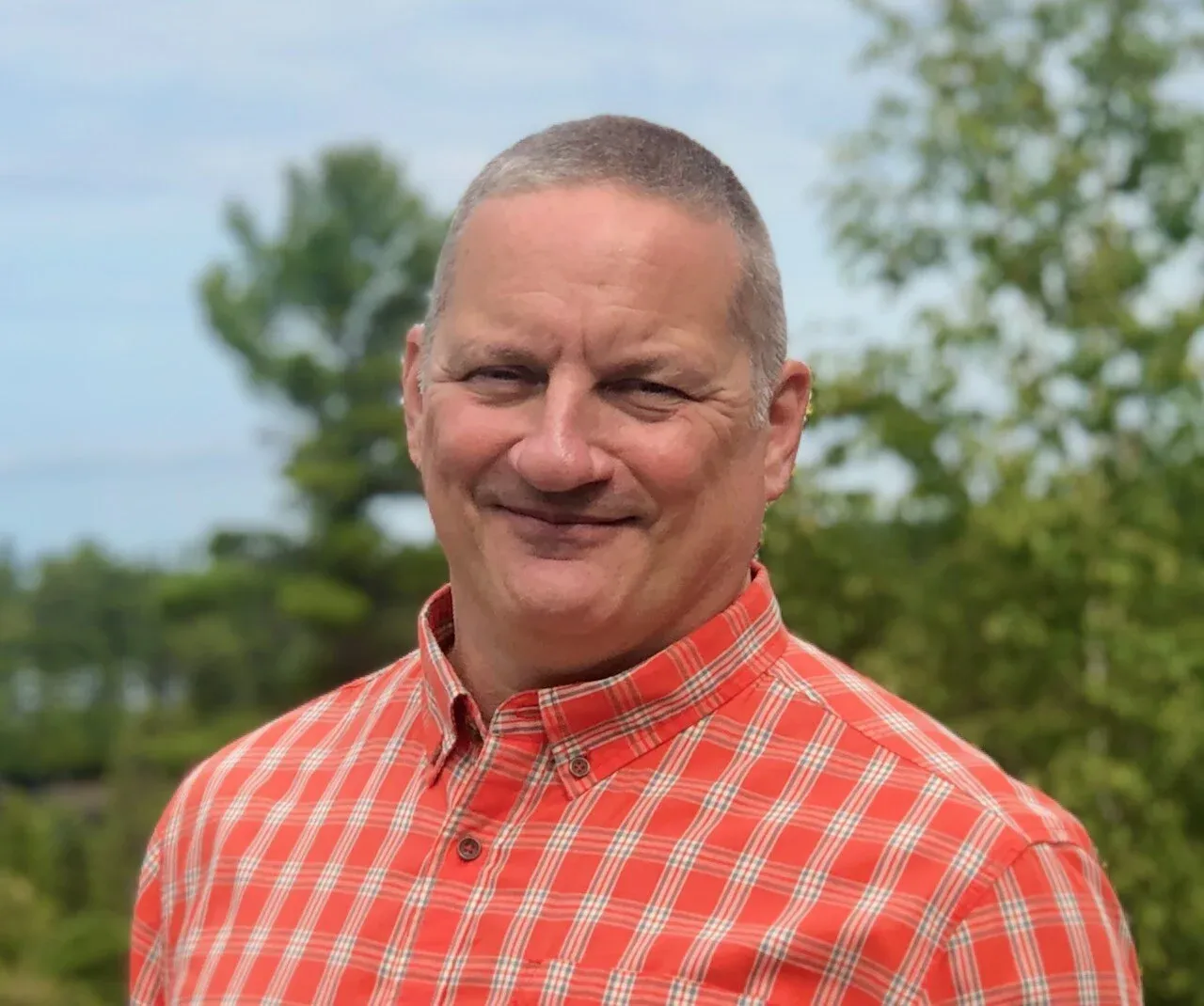
Tim Frick and his Certified B Corporation Digital Agency, Mightybytes, are exemplars of what it means to be an “agency of change” (a term Tim coined in some of his writing featured on the B the Change blog).
From tools to measure the environmental impact of your website to their list of better brand and nonprofit clients, Mightybytes has built an exceptional portfolio of examples where they’ve influenced positive change. While this may look easy, it’s not—and we were grateful when Tim joined me on the show to talk about this “balancing act” of finding what is the good you can do, at a sustainable clip.
“We learned through the B Impact Assessment what we could do with it and got super excited. For example, you’re asked a lot of questions about your supply chain as an agency. Your supply chain [as a digital agency] is pretty much pixels and people so you have to really rethink what that means.
…right around that same time we were learning that the internet had a larger environmental impact than the airline industry. And that was the thing that we built for a living. And so because of that, it was really eye opening to say, “Okay, all websites require electricity to run and the majority of our electricity in the United States doesn’t come from renewable sources. So what can we do at least for one step to find green hosting?” And so we started experimenting with a bunch of different green hosting providers. Turns out that wasn’t easy. And that ended up taking like four or five years of us going through a bunch of different hosting providers and seeing if we could find the right fit.
…every one of these things is a little bit of a balancing act of doing what you can do with your resources and trying to spot as many potential red flags as possible while also staying focused on providing good work. You’re only as good as your last project in our world. So making sure that your last project was as awesome as it could be is always a challenge.”
For more from Tim on Mightybytes’ and their agenda for change, listen here.
35. Sarah Woolsey, Founder of The Impact Guild, on the Importance of Small Celebrations on Your Way to Manifesting a Vision
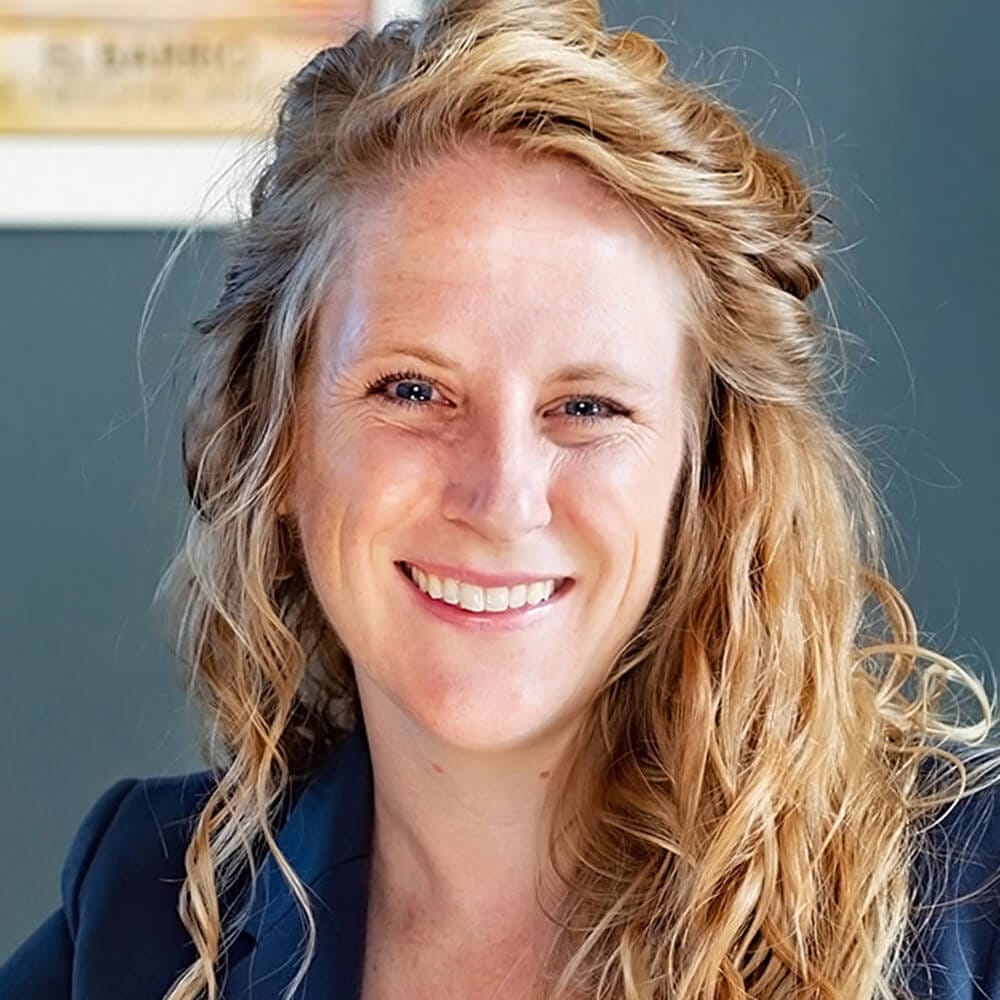
Very grateful to have connected with Sarah Woolsey and The Impact Guild community in my current city, San Antonio. A co-working space I’ve periodically called my office, The Impact Guild is a beautiful community space that Sarah founded with the intent to orient around ethical and sustainable community development.
In our podcast recording, we talk about the origin story for Sarah’s community space, from the inception of the idea to opening the doors, and everything in between. While they’ve made significant progress, in our chat Sarah reminded us of the importance of celebrating small “wins” on your way to manifesting your much larger vision.
“I can tend to look at that 10-year vision and see the gaps of everything that hasn’t happened yet and live way more in that space, which puts this internal pressure to go, go, go.
And that is one wonderful takeaway I think of doing this thing in community, and in the community that we’re building, is other people pointing out and saying, “Hold on, pause, celebrate this thing, this goal, this outcome, this thing that was a part of the vision that has been achieved. And yeah, there’s more and that’s going to be great and wonderful but slow down for a second and sit in the space to look back and be reflective.
And that is a practice that I am learning right now and it is really fun to see.”
36. Amy Looper, Co-Founder & COO of One Seventeen Media, On Endurance & Passion In The Social Entrepreneurial Journey
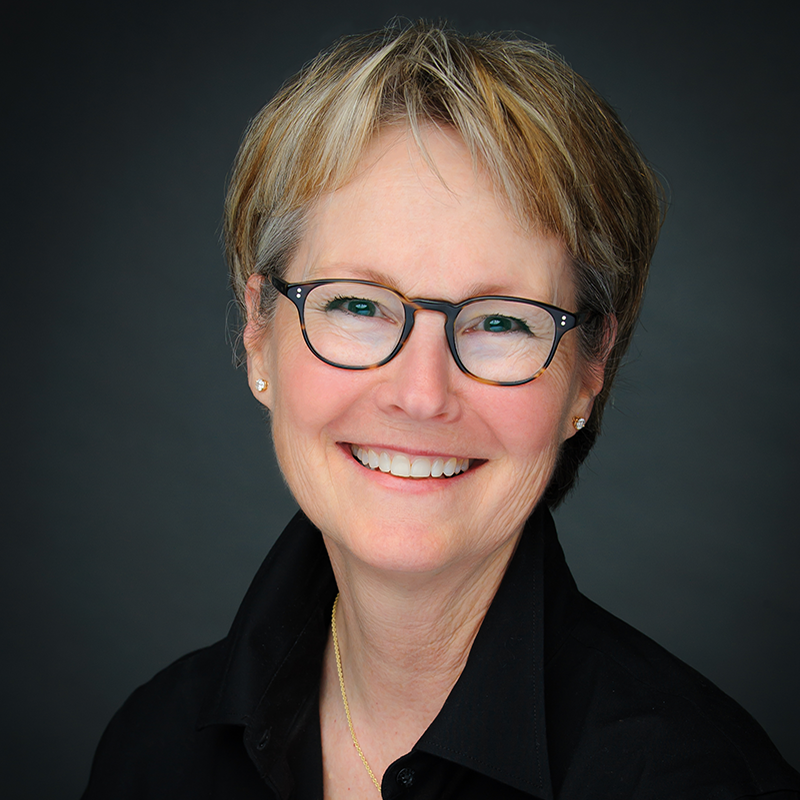
Amy Looper, and her partner Beth Carls, run One Seventeen Media, a Certified B Corporation in Austin, TX, deep in the world of Artificial Intelligence Medical Technologies.
Together, they’ve created reThinkIt!—an app that helps kids process difficult emotions in real time. reThinkIt! Has been responsible for preventing a school shooting, boosting school attendance, saving schools precious budgetary resources. An experienced entrepreneur, Amy reflected on the virtues and successful characteristics of her impact-focused entrepreneurial career.
“We know there’s a lot of opportunity that we want to take advantage of and I think it’s been a slow burn. And, this is just part of the entrepreneurial journey, right? With all of us that are about solving an impact problem, whether it’s social, emotional, or environmental, it is going to take a little bit longer burn rate to some extent.
But it is really true if this is your passion, if you find something that you’re passionate about and you can lock on it and stay with it, because there’s certainly been days when we’ve wanted to question, “What are we doing?”
Somebody the other day said, hey gosh, this is really cool. You guys are getting ready to take off. And I was like, “Yeah, it’s been a 19-year overnight success!”
Want to hear more from Amy on the “Social Entrepreneurial Journey?” Listen here.
37. Michèle Soregaroli, Founder & CEO of Transformation Catalyst, on How Your Values & Vision Differentiate You in the Marketplace
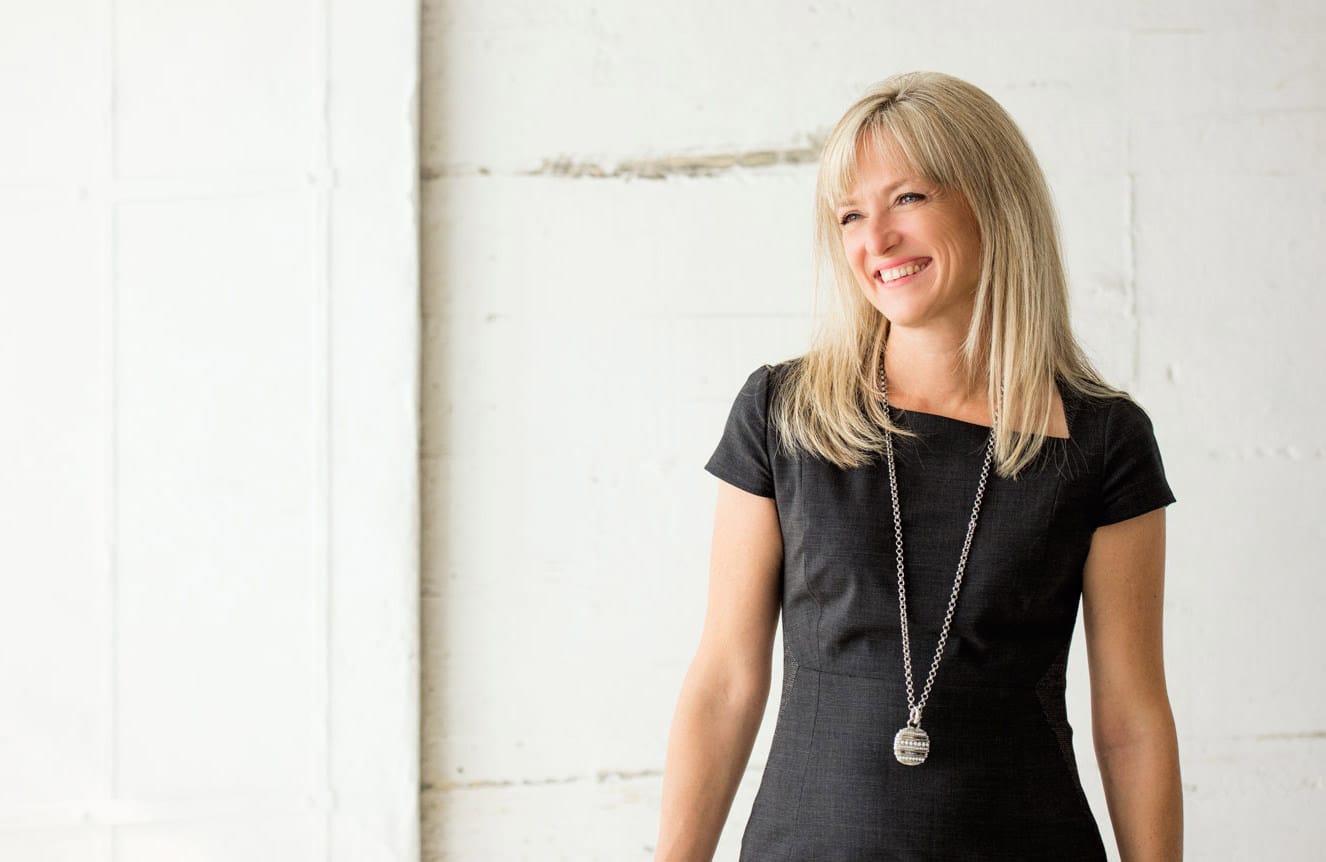
Michèle Soregaroli is a business coach with a specialty in differentiation, based in Vancouver B.C., helping entrepreneurs and business founders discover greater value, purpose, and mission in their work in efforts to separate them from their competition in the marketplace.
In our podcast episode, we covered Michèle’s origins into differentiation coaching, the importance of learning as an entrepreneur through trial and error, and business as a force for good. Michèle shared some of her secrets normally reserved from clients, on the keys to differentiation in the marketplace:
“The key to differentiation was not just about making noise and being loud and getting noticed, but the opportunity for a business to differentiate is the same way a human being would differentiate in terms of what’s important to that business and why it’s in business and what its mission is and what its vision of a better future would be.”
38. Chris Sparks, Founder of The Forcing Function, on Pushing Forward Every Single Day
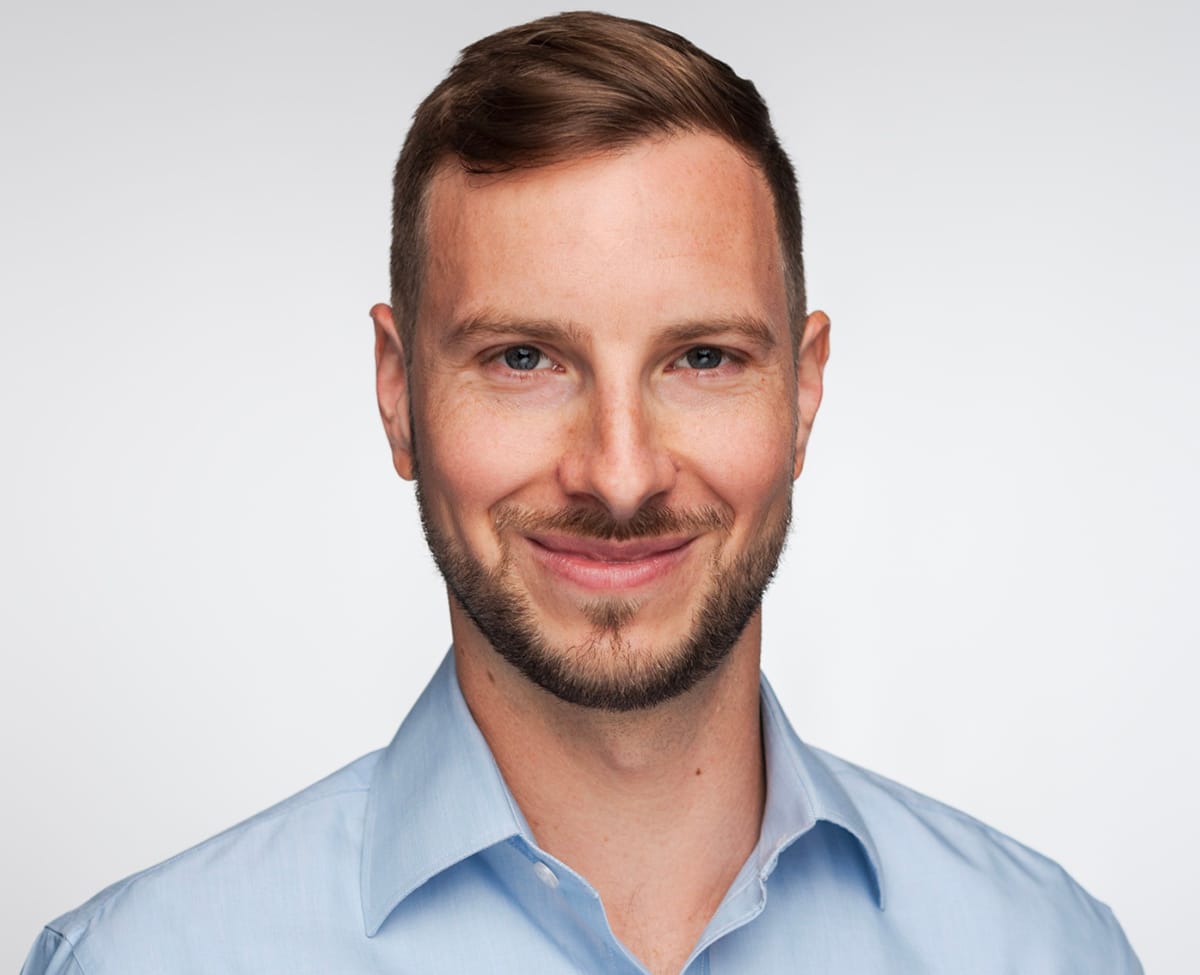
Chris Founded the Forcing Function with the objective to empower the next generation of entrepreneurs. Through coaching, resources, and retreats, Chris helps entrepreneurs to prioritize, become more effective in their day to day, and achieve significant professional and personal goals.
In our episode, Chris shared what he believed to be the most important message for anyone listening in.
“If I could give anyone a message from this, find some way to make some amount of small progress every single day… Understand what is important. Make sure that it happens regularly. Protect it. Have a way to track if what you are doing is leading to the results you want. If it’s not, change course.”
For more from Chris on Productivity & the Next Generation of Entrepreneurship, listen here.
39. Claire Booth, Founder & CEO of Lux Insights, on Values Being a “Guiding Light”
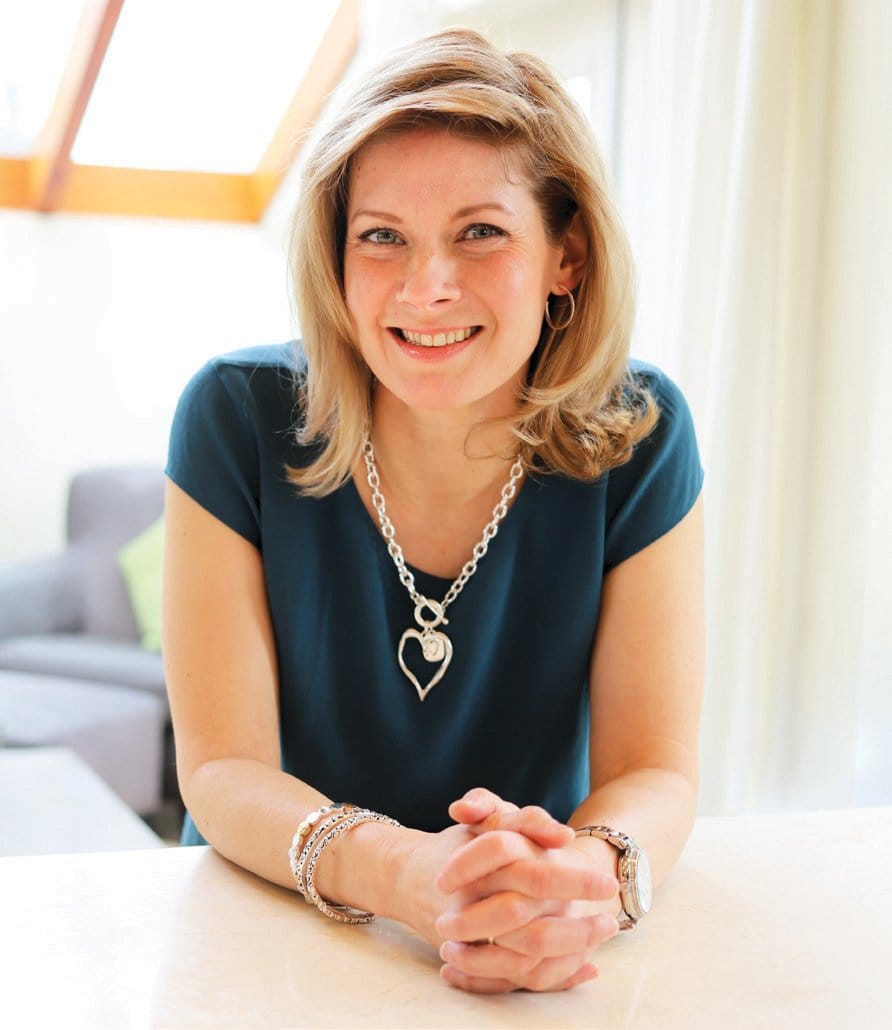
Claire Booth is the Founder & CEO of Lux Insights, a market research agency based in Vancouver, B.C., and the author of Achiever Fever Cure a book about the balance between seeking healthy achievement and achievement that fills an emotional void.
In our podcast recording, both Claire and the President of Lux Insights, Hanson Lok, joined to talk about the culture they’ve created which led to Lux receiving the 2019 Best Employer Award from British Columbia’s Small Business Awards. Claire drew the focus to their values.
“Our values were decided upon based on who we are as people. When we hire people who align with our values, they align with us, which is what allows us to deepen those relationships. We also find clients who align with those values tend to be the deepest relationships and the long-standing accounts we have been able to hold on to over the years.”
For more from Claire and Hanson on Creating an “Award-Winning” Culture, listen here.
40. Tara-Nicholle Nelson, CEO of Soul Tour, on Giving Yourself Permission to Not Do Something
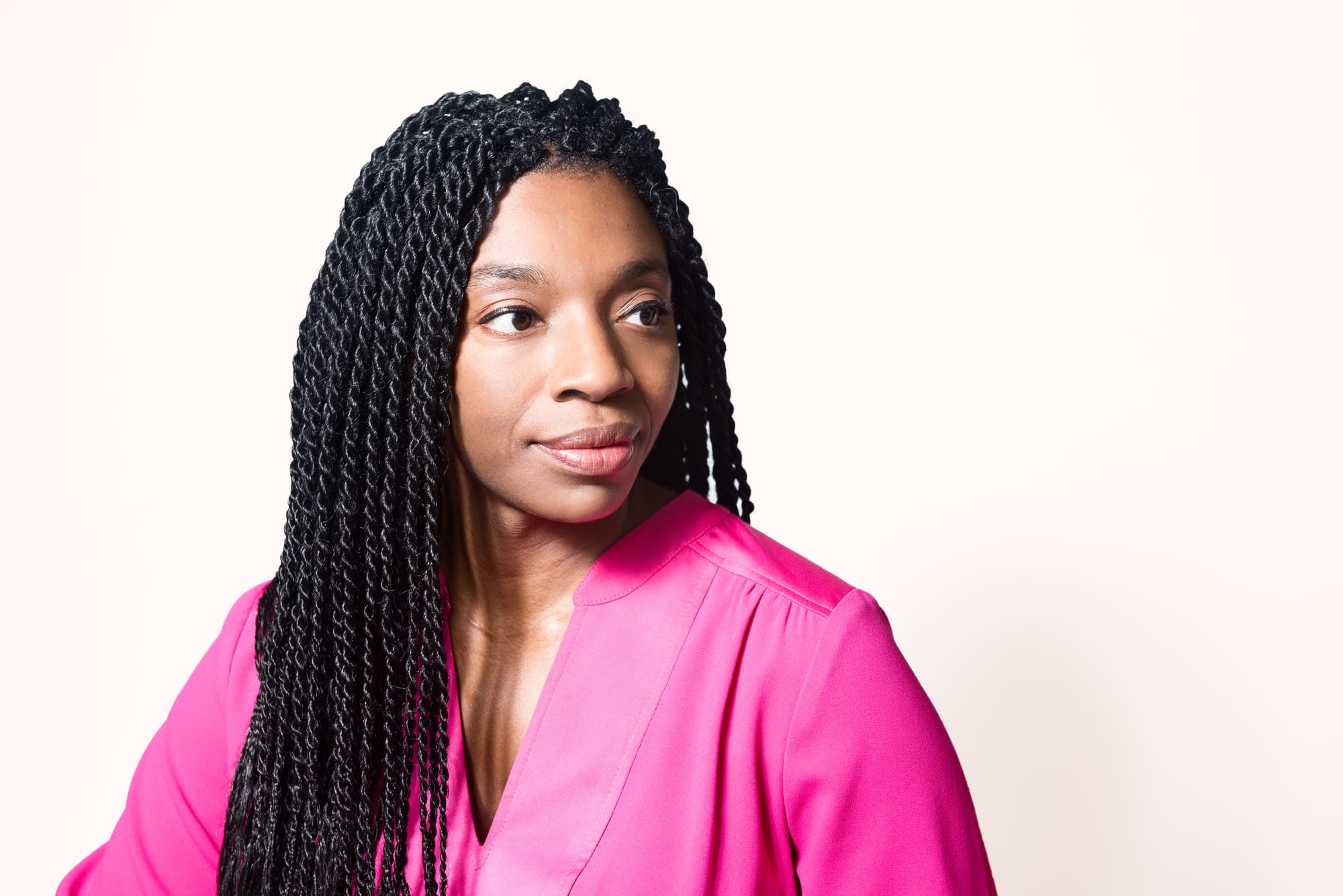
Tara-Nicholle Nelson is the Founder & CEO of SoulTour, a company that focuses on spiritual growth for entrepreneurs, specifically high-achieving women running purpose-driven organizations.
Tara considers herself to be “deeply obedient to the callings of her soul,” and encourages her clients to be the same. Our podcast recording was enlightening, and the clarity with which Tara operates and understands herself is compelling.
In speaking to the true clarity we all have already within us, Tara calls it an issue of permission…
“People are less confused about what they don’t want to do than they give themselves permission to be.”
To hear more from Tara and the importance of paying attention to your own callings, listen here.
41. Julia Chung, CEO of Admin Slayer, On Managing Your Emotional Health for the Sake of Team Success
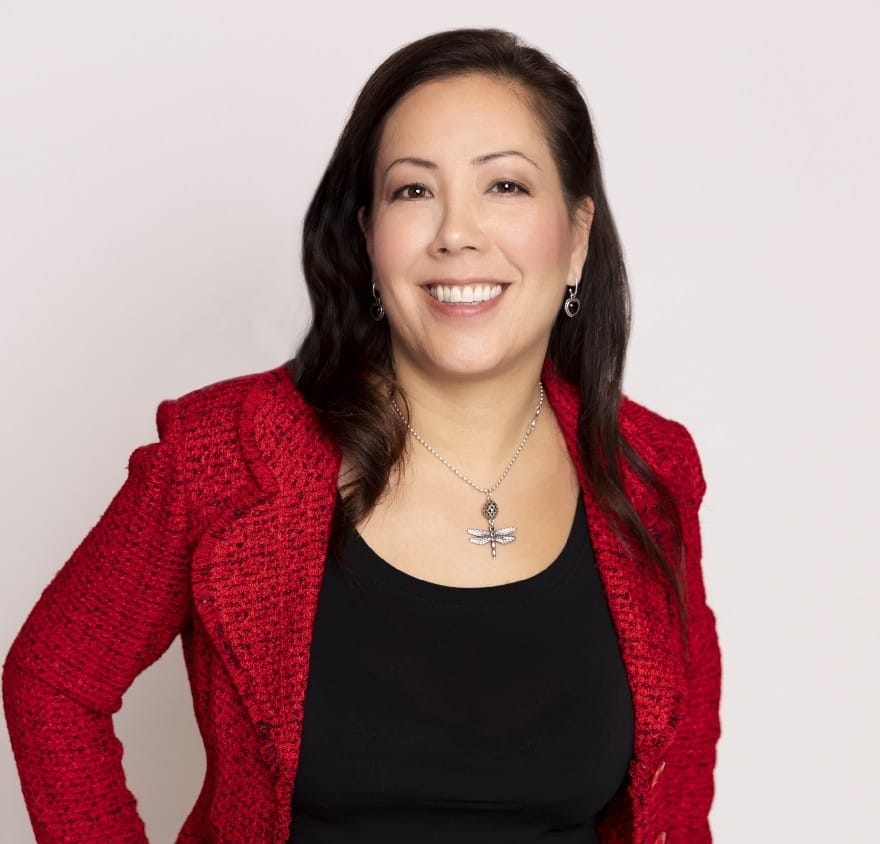
Julia Chung is the CEO of two companies (yes, TWO companies), Spring Financial Planning and Admin Slayer. In asking Julia how she happens to manage all that, she’ll humbly tell you: relationships, relationships, relationships.
And in our podcast recording together, Julia dove into just that, how critical the key relationships and partnerships have been in her success both personally and professionally, and how she goes about managing both herself and those relationships in a healthy manner.
“Every piece of baggage that you have not only gets carried into your personal relationships, but it also comes to work with you. If you can’t figure out what’s going on in here, you will be absolutely pointless and useless to your team.”
42. Giselle Waters, Content Strategist with Mad Fish Digital, On Why Work Can’t Exist Without Purpose
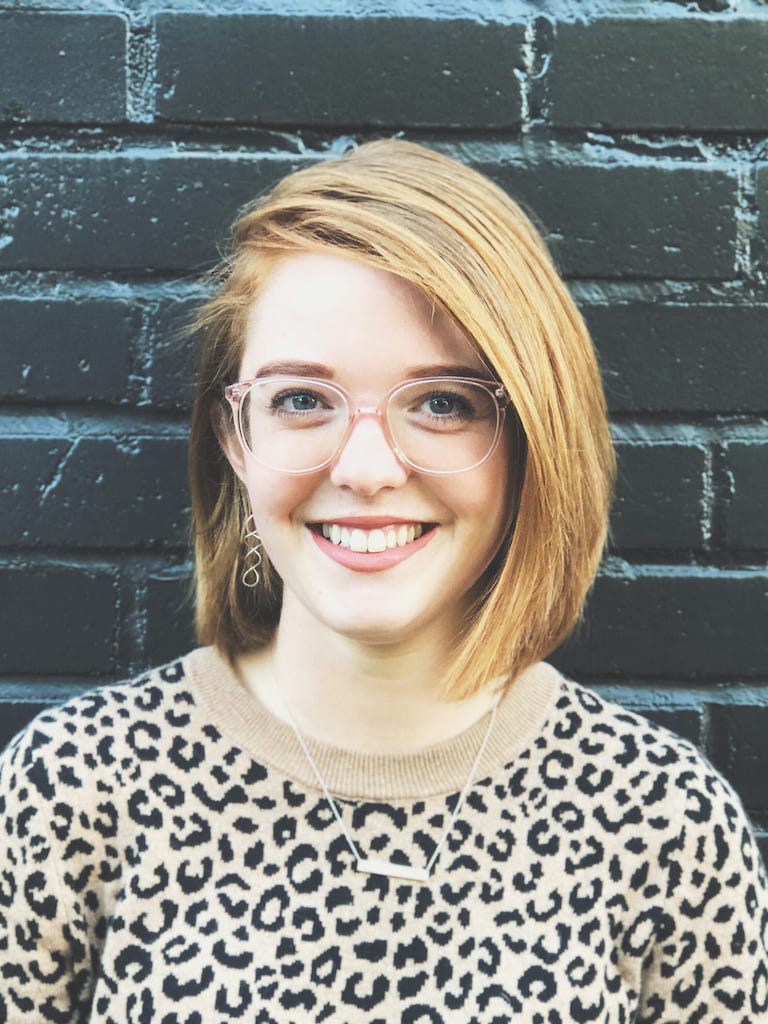
Giselle Waters is an expert content strategist with Mad Fish Digital, a Certified B Corporation marketing agency in Portland, OR. Giselle championed the B Corporation certification for Mad Fish and has been passionate about using her skills and energy for impact before she joined their team.
On the podcast, Giselle and I talked about business and work with purpose and how it’s been an essential piece to how she exerts herself professionally:
“I felt like I need to love what I do and love where I work every day and I need to love it for more reasons than just, you know, a paycheck or even the people I’m working with. Like I need to feel like what I do has meaning and impact beyond myself.”
For more from Giselle on B Corporation Certification & Building a Content Strategy, listen here.
43. Becci Gould, Associate Director at Kin&Co, On Why All Employers Need to Take Well-Being Seriously
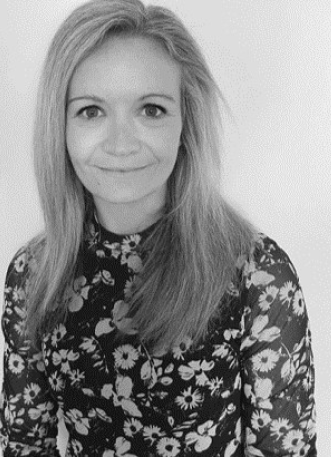
Becci Gould and the Kin&Co team are award-winning culture and behavior change consultants located in the United Kingdom. A Certified B Corporation as well, these folks have become thought leaders and sit on the cutting edge for reinvigorating organizations with a thriving company culture and purpose.
From shorter workweeks to Wednesday “ofternoons,” the Kin&Co team and Becci are running experiments on everything that can positively affect employees’ well-being and thus their performance on the job.
In our episode Becci talks about this topic with urgency, stressing all employers need to give their staff’s well-being focus.
“I think every employer should be doing something to maintain the wellbeing, the work-life balance, and prevent burnout of its staff. But it depends on what works for that organization.
I’ll also say, as I said before, you don’t need to go and roll this out across the board from day one, test a few different initiatives, see which ones work and then roll them out from there.
You don’t have to commit fully to everything straight away, but have a go and even if you’re just testing a few of these things, the message that sends to your employees is really strong because it shows that you really do care about this aspect of their lives and want to improve things for them.”
For more from Becci Gould on creating a thriving company culture, listen here.
44. Amanda Munday, Founder of The Workaround, On the Parenting & Professional Life Crossover
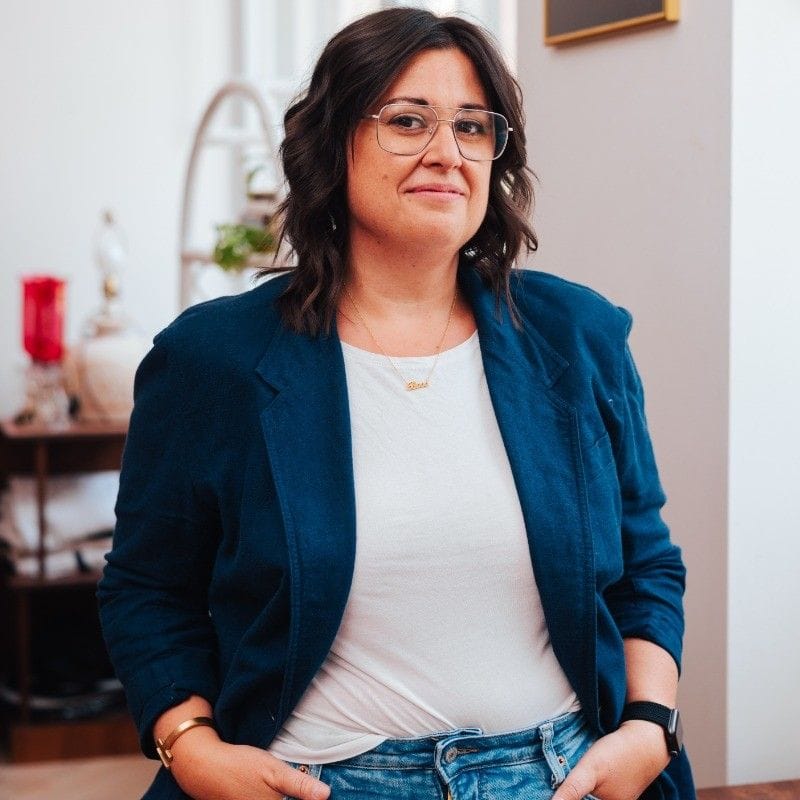
Amanda Munday is the Founder of The Workaround, a parent-friendly co-working space located in Toronto. In our podcast recording, Amanda dove deep into the dual identities of the professional and the parent, challenging us to think that just because you are one doesn’t mean you can’t as well be the other.
With her co-working space, Amanda is challenging our assumptions about what possibilities exist, what possibilities must exist, for the professional parents.
“What I challenge with it is we can run dual identities at the same time. And that’s at the core of what the workaround is doing is saying we are parents and we are professionals and we have other parts of ourselves outside of if you identify as mom or dad, we can have that life before. It’s not over because we’ve moved into parenting.”
Want to hear more from Amanda on evolving to a more parent-friendly workforce? Listen here.
Finance
45. Bernie Geiss, Founder of Cove Continuity Advisors, on a Philosophical Alignment that Led Him to the B Corp Movement
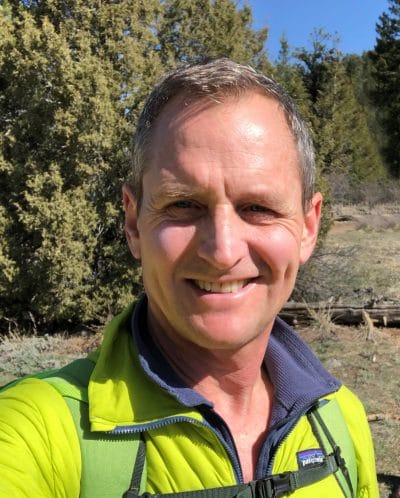
Bernie Geiss is the Founder of Cove Continuity Advisors, an award-winning financial services firm based in Vancouver, British Columbia. Before getting into financial services, Bernie spent multiple years traveling the world and learning, practicing meditation and yoga. It was those deeply impactful experiences that Bernie brought with him into his approach to starting his own business. With enough time, it seemed fitting that Bernie played an extremely active role in B.C.’s passing of the benefit company legislation.
In our episode, Bernie talked about how, with the help of a business coach (Michele Soregaroli, another podcast guest!), he came to align his philosophy with his business.
“We went through a very extensive deep search about what our commitments are, what our purpose is, and we came to the purpose of, that we want to lead a fundamental shift from unconscious entrepreneurial-ism to enlightened continuity.
And that was a way for us to integrate the philosophical side of what we all deeply believe in with what was going on in the world. That there’s this unconscious entrepreneurial-ism, which is this desire to earn profits and to save money and to consolidate and concentrate wealth in the hands of a small group of people to the exclusion of many people who are working for those people.
It was through Michelle and that evolution of rebranding that we discovered the B Corp movement.”
46. Doug Lessing, Founder of Phin, On Using Unstructured Time to Create Flow
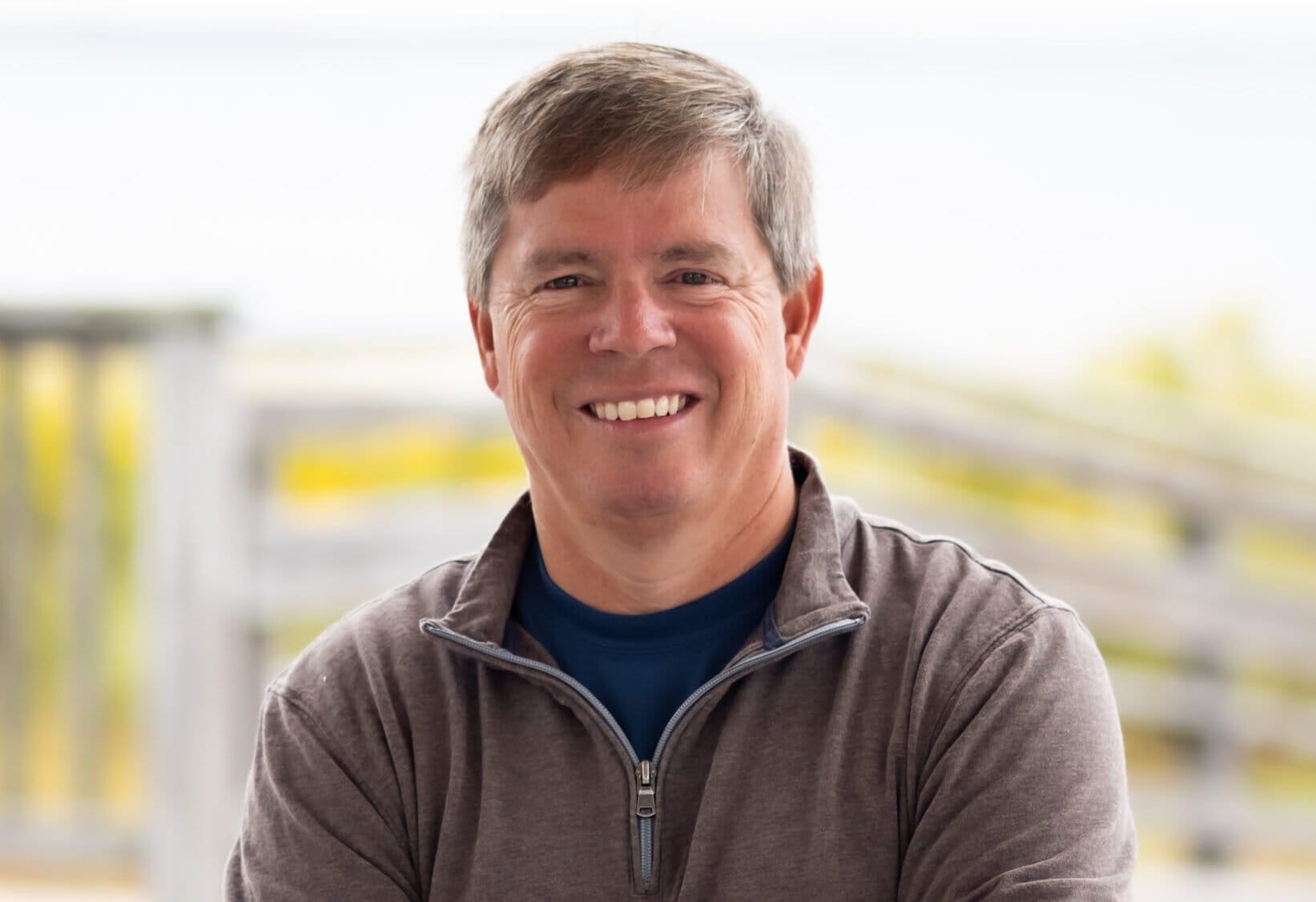
Doug Lessing is the Founder of Phin, a soon-to-be Certified B Corporation startup that connects great companies with great people and causes. Doug opted to take the social entrepreneurial leap, leaving a company he “grew up in” to build a startup with social good at its core.
The impetus for this startup, Phin, came from something of a sabbatical that Doug took as a moment away from his previous job to create space and time to think and process what his next career move might be.
It’s this prioritizing of space that Doug has kept with him now in his day-to-day of building this social impact-focused business in Phin.
“That unstructured time actually became the one thing that I hold onto now, as the one thing that I really learned, and that’s that when we give ourselves some space, the magic really begins to happen.
The creativity begins to flow, energy begins to flow, the ideas begin to flow.”
For more from Doug & his approach to social entrepreneurship, listen here.
Tech
47. Austin Buchan, CEO of College Forward, Listening & Responding to Feedback to Scale Impact in the Nonprofit Sector
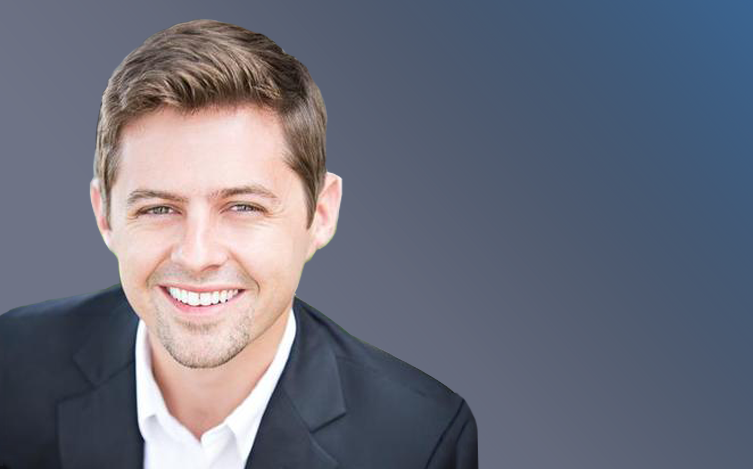
College Forward is a nonprofit in Austin, Texas that helps what would be first-generation college students get to and through college. Joining CEO (and my brother-in-law) Austin Buchan in the College Forward office for a recording, Austin reflected on how College Forward has been able to develop the powerful programming for students that they have (through what would now be called Human-Centered Design).
He also got into how College Forward is taking that intimate understanding of what their students need to begin to look at how they continue to serve students, but at a much larger scale.
“Going back to just mission and money as the two things that we’re thinking about within the overarching lens of scale, there are 1.7 million students in college in Texas alone, and we’ve got to think differently if we want to see these numbers [low-income student access] move. And you know, sadly I think this is kind of tragic in some ways, but the outcomes that we care about, looking at the number of low-income students getting into college, persisting and graduating, that number has actually gone down since we started this work even in our local community.
Those inequity gaps are growing every single year. And even though for the fortunate students who kind of stumble into our program by chance, we’re leveling the playing field…
How we take what’s worked for 13,000 students and scale it to 130,000 over the next year, 1.3 million the year after…those are the questions that we need to be designing programs and business models around to make sure that we can do it at scale. And when I say scale, I really mean scale. Not how do we open up another office in San Antonio to serve 200 students, but how do we really design a model that could reach hundreds of thousands if not millions now over the next 10 years?”
For more on Scaling Impact and Earned Revenue Models in the Nonprofit space, listen here.
48. James Christie, Founder of SustainableUX, Footprints in the Digital World & Taking Passion Projects to Full Blown Enterprises
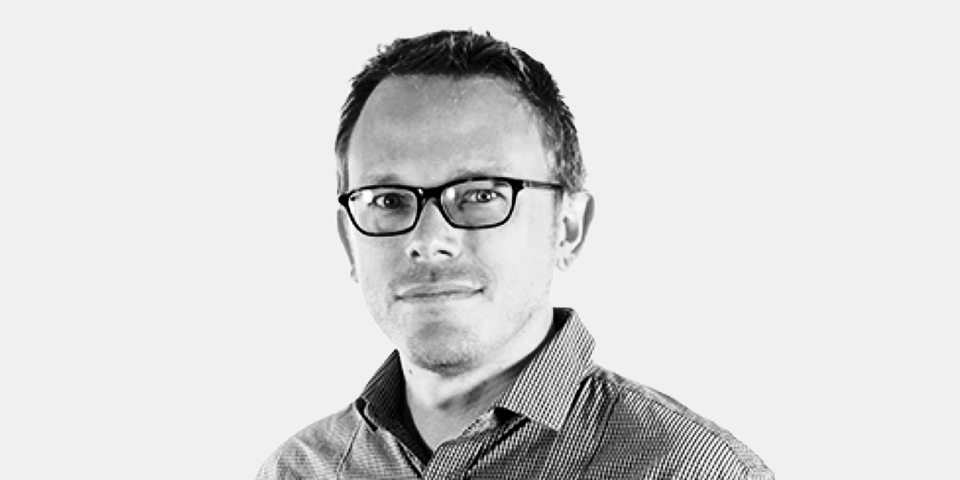
James Christie Founded Sustainable UX in 2016 with the hopes that this online conference “for UX, front-end, and product people who want to make a positive impact—on climate change, social equality, and inclusion” would attract 40 visitors. It brought 400 to attendance.
Since then, Christie knew this topic had concern and traction, and alongside his full-time work as a Director of UX with Mad*Pow, Christie and his SustainableUX team have continued the conference drawing over 1,000 attendees over the last two years.
James joined me on the podcast to talk both digital footprints and challenges of taking this passion project and turning it into something much greater.
“All the challenges are basically personal. This is a spare-time project and it’s a passion project…there are a lot of competing priorities. [One strategy is] to de-distractify [my] life, to focus on what matters, to prioritize beyond the noise. I’m getting way more focus and able to unblock myself there. It’s definitely a work in progress.”
49. Yasmine Mustafa, CEO of ROAR for Good, on the Power of Personal Stories to Forge Persistence
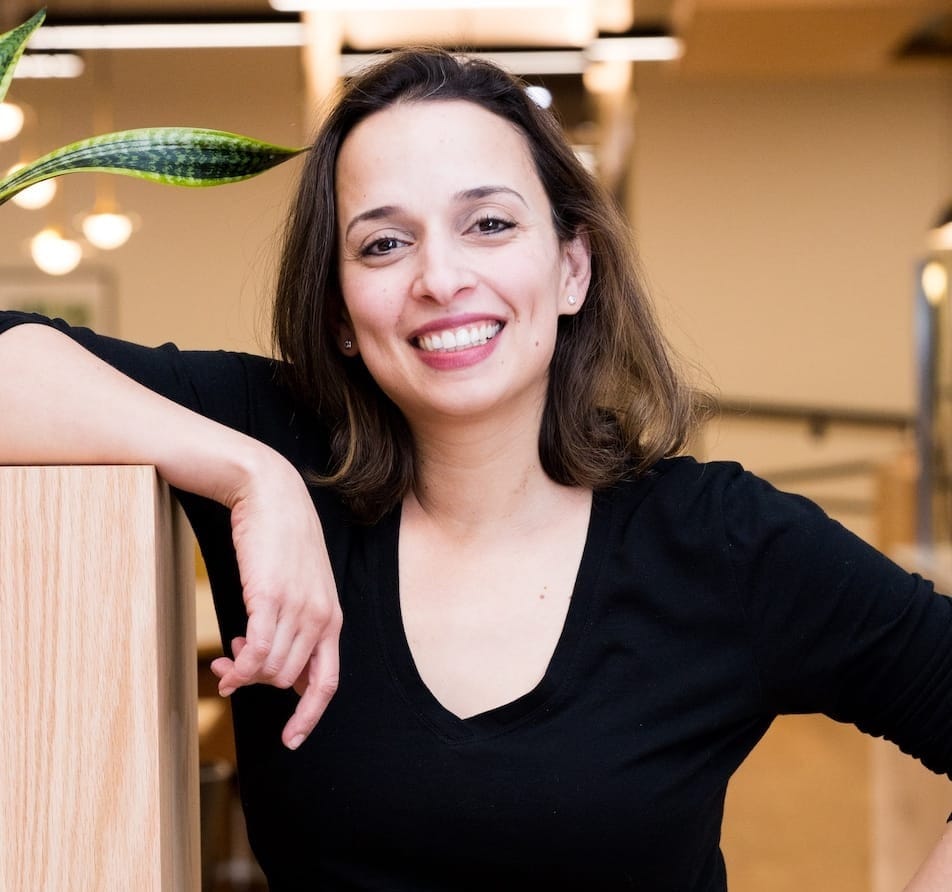
Yasmine Mustafa is a wildly talented and inspirational social entrepreneur. Being forced to flee Kuwait with her family to the U.S. during the Gulf War, Yasmine’s determination has led her through challenge after challenge. Whether it was completing Temple’s social entrepreneurship program while working two part-time jobs, or now pivoting her company ROAR last year, when faced with product/market fit challenges.
Yasmine joined us on the podcast to share what has kept her going with this company, and ROAR specifically.
“At every event, no matter what, someone would approach us with their personal story. That’s what ultimately drives you…I would actually go and re-read testimonial emails as motivation any time I got down.
It’s the impact of the people she’s working with that keeps Yasmine going, she also makes sure to focus on that which drives her, and that which doesn’t:
“I take stock of things that drain me and things that energize and do more of the latter. Whatever’s draining, I try to eliminate that.” [32:04 – 32:15]
50. Frederick Hutson, CEO of Pigeonly, On the Talent of the Formerly Incarcerated That’s Largely Overlooked
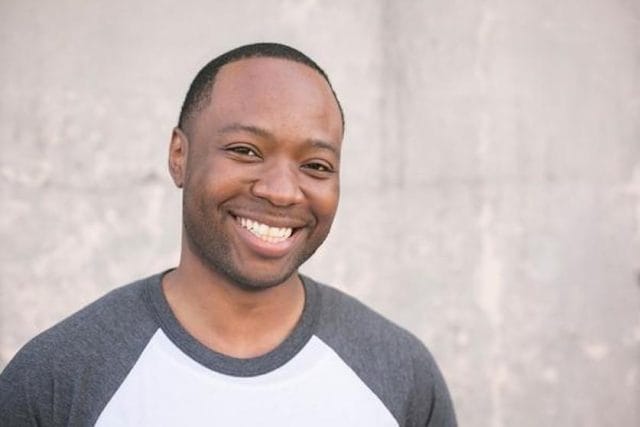
Frederick Hutson is the CEO of Pigeonly, which is a service that makes it easier and more affordable for families to connect with their incarcerated loved ones. The idea for Pigeonly was a highly personal one for Frederick. At the age of 23, Frederick was sentenced to five years in federal prison for the illegal distribution of marijuana.
Once settled into his prison sentence, he obsessed about imagining a better life for himself when he was out. Always an entrepreneur, Frederick thought about how he could leverage this personal experience of incarceration and his intimate understanding of the prison system to provide a useful and valuable service. It was in 2012 while living in a halfway house when the idea for Pigeonly was born.
On the show, Frederick shared his thoughts on this segment of the population that’s highly talented but being largely overlooked.
“We have returning citizens in every single department of our company. I’m not saying just put people in customer service. I’m not saying we just put people in our fulfillment department that handles all of our shipping and printing.
We have returning citizens that are in engineering, we have them in marketing, we have fulfillment, we have them in customer service, we have them in operations.
What I’ve found and what I know to be true just from my own experience, is that there’s an incredible amount of talent in the U.S. prison system by virtue of the criminal justice system here being largely out of control. And I look at the number of people being incarcerated and the laws that aren’t really designed around rehabilitation…there’s a lot of talent that is being released.”
